Book review: Ikigai, the Japanese secret for a long and happy life

After reading the book ”Blue Zones” by Dann Buetner I learned two things: ”Ikigai” and ”Hara hachi bu” (later more on later). These are very interesting terms when it comes to a long and healthy life. Don’t we all want to live a long, healthy and happy life? Frances Miralles and Héctor García did research on the secret of the elderly in Japan. Why do Japanese elderly become so extremely old in certain areas in Japan? What are they eating? What are they doing to stay active? How do they deal with stress? What does their social life look like? All of this is discussed in ‘ ‘Ikigai, the Japanese secret for a long and happy life”.
This post contains affiliate links. Read my full disclosure here .
” Only those who remain busy want to become hundred ” – Japanese p roverb

What is ”Ikigai”?
The term ”ikigai” is explained in various ways. You can describe it briefly as: the reason why you get out of bed in the morning. It is the reason for your existence. The French might say ” raison d’etre” . The book also links to certain Western therapies (such as logotherapy) and may also be a question, such as: ”why don’t you commit suicide?” That’s a harsh question, but it’s forces you to really think what’s important in life. And right there lies the secret to a long and happy life. In the answer to this question you will find your own ikigai. This is one of the reasons why the inhabitants on the Okinawa island are getting so extremely old. On this Japanese island, there are more centenarians than anywhere else in the world. Not only are they old, but they are still active and happy, up until a very high age.
”We find our ikigai by concentrating on what is important , rather than what’s urgent . By constantly keeping an eye on what feels good, we are able to discover what our passion is.”- Mundo Urano
In this book, the term ikigai is translated as the bliss of always being busy. Ikigai is actually a combination of your passion, your mission and your profession. Your ikigai can be very clear, but also something you’re still looking for (which on its own may be your ikigai).
The elderly of Okinawa never retire. The best thing about your ikiga is that once you’ve found it, you don’t want to retire. Some 90 year olds say they have so many plans and don’t think about dying. They always keep having a purpose for which they get out of bed in the morning.
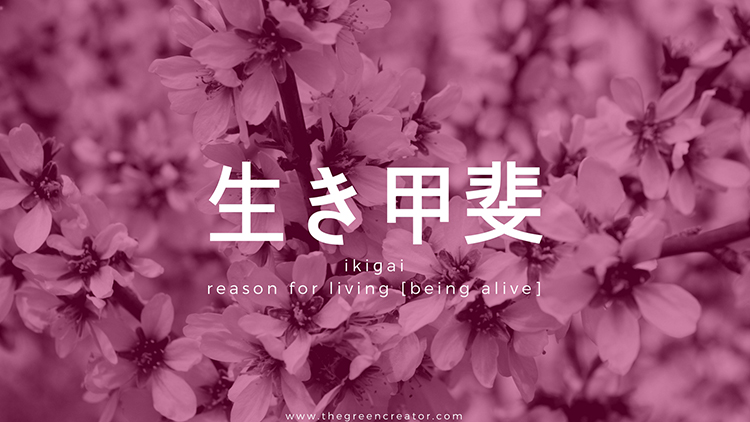
Hara hachi bu & Moai
An old Japanese proverb is: hara hachi bu. This means ”eat until you’re eighty percent full”. The Japanese elderly don’t overeat and believe that eating a little less than you need is healthier.
Another beautiful phrase is ”moai”. This represents a group of joined people with the same interests. In this group the elderly are always there for each other when they need help or support. Whether you have financial problems or need help with something at home, you can always count on your moai.
Good advice
What I appreciated in the book were the advices that were given (especially in the beginning and at the end of the book). The conversations with the elderly were also interesting and could have been, in my opinion, a bit longer and more comprehensive. Some good advices:
- Realize that the only thing that really exists and what we can control is the present. So we should not worry about the past or the future, but appreciate the things that are here right now. Keep in mind that things/persons are not here forever with us, but not in a way that will make you worry about it. The realization that everything/everyone is temporary with us should actually lead to a greater appreciation for life.
- Keep resilient. Resilience is the ability to get through a setback and to overcome it positively. You can do this for example by living in the moment, in Japanese this is called: wabi-sabi. This means that you should try to see the beauty of everything that is perishable, changing and imperfect.
“The things we love are like leaves on a tree, they can fall anytime when the wind pops up.” – Emperor Marcus Aurelius
How to age healthily?
On the island of Okinawa in Japan, most centenarians live per 100,000 inhabitants. In this book, they share their pieces of advice on how to stay and get old healthily.
- Limit stress consciously: Stress has a negative impact on our health. The writers share some tips on how to better manage stress. Meditation is an example to reduce stress, but also living consciously in the moment during small daily tasks can help.
- Stay physically active: The writers explain that a sitting existence is the ”enemy of staying young”. They share a few tips to move more on a daily basis. Walk to work or walk for fun for at least twenty minutes a day. Don’t use an elevator or escalator, but use your legs. The writers say: moderately intensive moving your body equals a longer life.
- Sufficient rest and sleep is important.
- Nutrition: A healthy diet is of course very important. The diet on Okinawa is also called the ”wonder diet”. It’s for example important to eat a variety of foods and not to overeat. The centenarians eat hardly any sugar. Often only 1x per week and then they choose cane sugar. They eat a lot of tofu and sweet potatoes and about 300 grams of vegetables per day. They eat a variety of foods and mostly plant-based. They also eat grains on a daily basis and eat small portions of everything several times a day.
- Strong social ties with family/friends/neighbors is important. On Okinawa, the moai groups were created to provide a social network. The elderly in these groups spend a lot of time together by meeting regularly and supporting each other in difficult times.
- Stay mentally strong: It’s important to keep using your brains. This can be done by brain training or by looking for new situations.
- Go out in the nature, smile and be grateful.

What could have been better
What I found a missed opportunity was the fact that the writers didn’t include a resource list in the book with references. Many of their statements can be backed up with books and studies. I think the addition of sources would have made their message even stronger.
Also, it was sometimes difficult to determine whether the book was about how to get old healthily instead of finding your ikigai. I have no problem with the topic ”healthy aging” (it’s my favorite topic), but I can imagine that readers may wonder sometimes: is this a book about finding your inner happiness or about healthy aging? I will explain this with an example. The book contains a great number of pages with explanations and illustrations on how to do certain exercises (such as the sun salutation, qi gong and tai chi). As this is a thin book already, I found this to be a bit unnecessary and too far away from the subject: ikigai/ finding your life purpose.
”All is good” – Jeanne Calment (122 years)
My conclusion is that this book is a nice, entertaining book that reads very easily and quickly and can certainly motivate you to live healthier. I’ve learned some nice tips. However, if you want to read more about the topic of centenarians and if you’re interested in their lifestyle, I can recommend the book ”Blue zone”.
I wouldn’t go so far by saying that this book will help you to find your own ikigai. This is something very personal and this can be something very big or something very small. This book is not really about that. However, it gives you an idea of how it feels once you’ve found it and explains why it’s so healthy. I can also recommend this book if you’re looking for great insights and inspiration to live healthier and more positive. There might have been some more ”ikigai tips” in this book, but nevertheless this book is a great addition if you love self-help books with an emphasis on health.
M icroflows & my ikigai
Ikigai is doing something where your heart is and that will get you into a flow. Ikigai can also be a microflow, where you enjoy daily routine tasks like doing the dishes. For this reason, Bill Gates for example does his dishes every night. It helps him to relax and he tries to do it better every day. In a better order for example by rules that he made up himself. Your ikigai does not have to be a big mission to change the world, but something you like, what you do everyday and what gets you into a flow.
My ikigai is without a doubt cooking, writing and photography. If I do this and the doorbell rings I need 5 seconds to get back on earth again. I completely forget about time and sometimes even where I am. I totally get into my flow. That’s clearly my ikigai and I’m grateful that I’ve found it.
And what about you? Are you still looking or have you found your ikigai?
” Ikigai, the Japanese secret for a long and happy life”. $ 11.75 Publisher : Penguin Books (August 29, 2017)

On Being More Sustainable In 2021

How To Save A Juice Or Smoothie

Naturally Grow Longer Eyelashes and Thicker Eyebrows
Stay up to date and get more recipes and updates delivered to your inbox, follow me on.


Discovering Purpose: A Review of “Ikigai – The Japanese Secret to a Long and Happy Life”
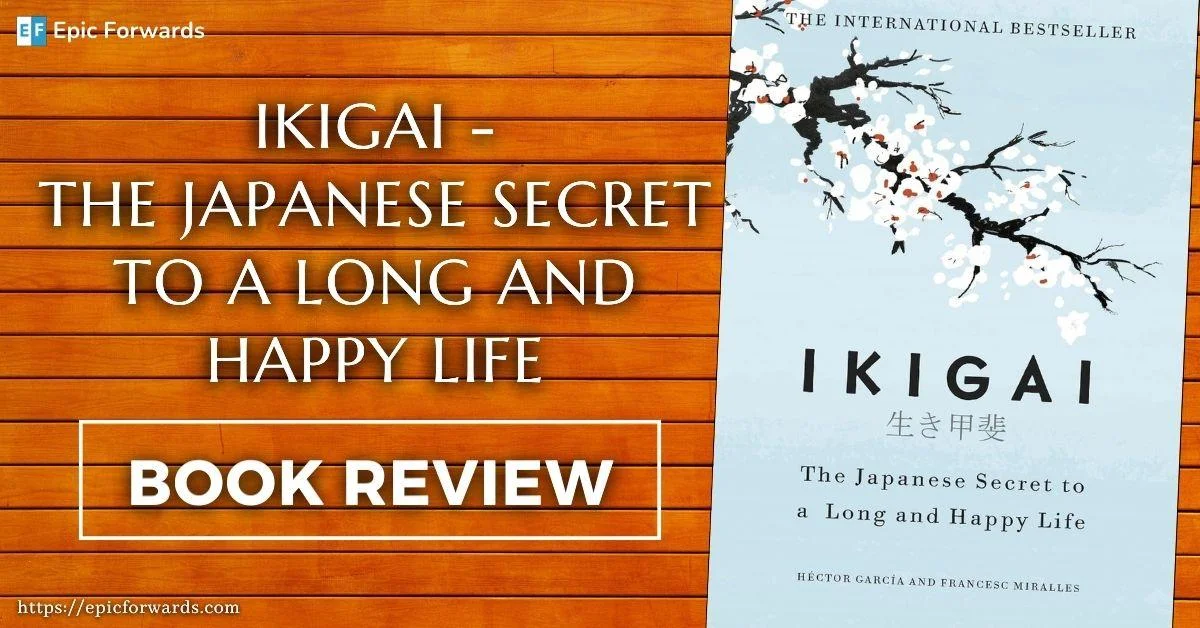
- Post author: James
- Post last modified: July 20, 2024
- Post category: Book Review
- Post comments: 0 Comments

Book Title: “Ikigai – The Japanese Secret to a Long and Happy Life” Author: Francesc Miralles, Héctor García Genre: Self-Help Publication Date: April 2016
Introduction
Embarking on a journey to uncover life’s purpose is a universal quest, and “Ikigai – The Japanese Secret to a Long and Happy Life” is a guide that beckons us to explore the intersection of passion, mission, vocation, and profession.
In this review, we’ll delve into the wisdom of this captivating book and explore how it can help you find your own “ikigai” .
“He who has a why to live for can bear with almost any how.” – From Ikigai
Cracking the Code of Ikigai: A Brief Overview
Published as a collaboration between Héctor García and Francesc Miralles , “Ikigai” draws inspiration from the Okinawan culture, renowned for its longevity and emphasis on finding purpose in everyday life. The book unravels the concept of ikigai, a Japanese term that roughly translates to “a reason for being” , and offers a holistic approach to living a fulfilled and meaningful life.
The Essence of Ikigai: Analysis and Evaluation
The authors weave a narrative that seamlessly blends storytelling with research, cultural insights, and practical exercises. Through compelling stories of centenarians from Okinawa and thought-provoking exercises, “Ikigai” invites readers to reflect on their values, passions, and pursuits that bring joy and fulfillment.
You would also like to read: A Review of “Atomic Habits” by James Clear
Themes and Messages: Navigating the Path to Fulfillment
The central theme revolves around the pursuit of finding one’s ikigai, the sweet spot where passion, mission, vocation, and profession intersect.
The book explores the importance of living in the present moment, fostering strong social connections, and maintaining a healthy lifestyle as key components of a purposeful life.
A Journey into Ikigai: Style and Language
The writing style is both evocative and informative. García and Miralles use anecdotes, metaphors, and concise language to convey profound concepts, making the book accessible to a broad audience. The integration of Japanese cultural wisdom adds a layer of richness to the narrative.
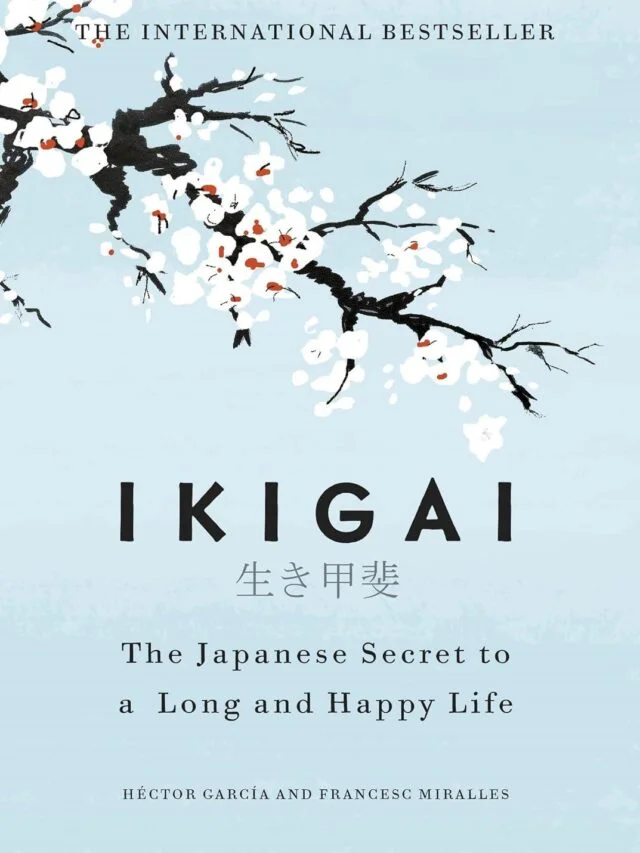
Finding your ikigai is easier than you might think. This book will help you work out what your own ikigai really is, and equip you to change your life. You have a purpose in this world: your skills, your interests, your desires and your history have made you the perfect candidate for something. All you have to do is find it.
Personal Insights: A Quest for Ikigai
On a personal note, the journey through “Ikigai” has been transformative. The exercises prompted introspection, leading me to reevaluate my priorities and align my actions with my values.
The practical wisdom shared in the book has inspired positive changes in my daily life, fostering a deeper sense of purpose.
The happiest people are not the ones who achieve the most. They are the ones who spend more time than others in a state of flow. – From Ikigai
You would also like to read: ‘The Old Man and the Sea’ Book Review
Key Lessons from “Ikigai: The Japanese Secret to a Long and Happy Life”
- Convergence of what you love, what you are good at, what the world needs, and what you can be paid for.
- The sweet spot where these elements intersect is your ikigai.
- Identifying and pursuing your ikigai leads to a more satisfying and fulfilling life.
- Ikigai involves a balance between passion and practicality.
- Ideal life combines doing what you love with finding practical ways to make a living.
- Engaging in activities aligned with your ikigai can lead to a state of flow.
- Flow is associated with happiness and fulfillment.
- Emphasis on a balanced diet, regular physical activity, and strong social connections.
- Contributes to a longer and happier life.
- Building and maintaining strong social connections is crucial for a meaningful and happy life.
- A mindset of continuous learning and personal development is essential.
- Seek new challenges and opportunities for growth.
- Simplifying life and focusing on what truly matters enhances contentment and purpose.
- Being present and mindful in everyday activities helps appreciate small joys and improves well-being.
- Living a life aligned with ikigai may contribute to a longer and healthier life.
Recommendation: A Blueprint for a Meaningful Life
“Ikigai” is not just a book; it’s a roadmap for those seeking a more purposeful and fulfilling life. Whether you’re at a crossroads in your career, searching for passion, or simply yearning for a more meaningful existence, the book provides insights and practical guidance to navigate life’s journey.
You would also like to read: “Wings of Fire” Book Review
Conclusion: Embracing Ikigai for a Richer Life
In conclusion, “Ikigai – The Japanese Secret to a Long and Happy Life” offers a profound exploration of purpose, seamlessly blending cultural wisdom with practical advice. It’s an invitation to embrace a lifestyle that aligns with our values and passions, unlocking the secret to a longer and happier life.
Ready to Discover Your Ikigai? Grab Your Copy of “Ikigai” Here: Get “Ikigai” on Amazon
Meet James, the creative mind behind EpicForwards.com, where he weaves a tapestry of inspiration through quotes from the greats, heartwarming wishing messages, and a celebration of global festivals. Dive into a world where every image, photo, illustration, GIF, and video is not just captivating but also freely available, making every visit an epic journey of visual delights.
You Might Also Like

Exploring the Flames of Inspiration: Wings of Fire Book Review

Unleashing Potential: A Review of “Atomic Habits” by James Clear

Exploring Hemingway’s Masterpiece: ‘The Old Man and the Sea’ Book Review
Leave a reply cancel reply.
Save my name, email, and website in this browser for the next time I comment.
Sign me up for the Newsletter & Upadates!
- Relationship
- Spirituality

Join me on this adventure as I uncover the secrets to life so satisfying even your morning coffee will envy you.
Spoiler alert: it’s not about finding a hidden ninja dojo or mastering the art of origami (though that would be cool).
No, it’s about discovering your passion, embracing the things that make your heart do the happy dance, and sprinkling a bit of Japanese wisdom into your daily routine.
So, grab your reading glasses and a cup of green tea; we’re about to review the book Ikigai: The Japanese Secret to a Long and Happy Life.
Ikigai: An In-depth Exploration
Hold on to your hats because Héctor García and Francesc Miralles are taking us on a literary joyride through the enchanting world of Ikigai!
They’re like the literary wizards of happiness, blending “iki” (life) and “gai” (value or worth) into a concoction that’s more magical than a unicorn parade.
This fusion encapsulates the essence of finding joy and meaning in life.
You’re not just reading a book; you’re embarking on a Japanese cultural journey through the soul-soothing landscapes of Okinawa, where the quest for Ikigai is a way of life.
It’s like a literary vacation without the jet lag!
As you flip through the pages, García and Miralles sprinkle their wisdom like fairy dust, sharing real-life stories and weaving anecdotes that’ll have you nodding in agreement and pondering life’s mysteries.
But wait, there’s more!
At the core of Ikigai is a Venn diagram that is so simple that it’s like the IKEA furniture of life philosophy.
The simple yet potent Venn diagram presents the intersection of what you love, what the world needs, what you can be paid for, and what you are good at.

The author skillfully guides readers through each quadrant, unraveling the layers of self-discovery with a blend of practical advice and philosophical musings.
The book’s strength lies not only in its insightful exploration of Ikigai but also in its holistic approach to well-being.
Drawing from the wisdom of centenarians in Okinawa, the authors touch on lifestyle factors, including diet, community, and mindset, that contribute to a long and meaningful life.
Moreover, the authors infuse delightful humor into the narrative, making Ikigai an enjoyable read.
Read: Transform Your Life With Books On Self-Love
It’s not just a guide; it’s a companion, gently nudging readers to reflect on their values, passions, and aspirations.
As the pages unfold, Ikigai emerges as more than just a concept; it becomes a philosophy, a way of approaching life with intention and purpose.
From the wisdom of centenarians to the stories of accomplished professionals who have found their Ikigai, the narrative is interwoven with inspiring examples.
This not only adds depth to the concept but also serves as a source of motivation for readers to embark on their own Ikigai journey.
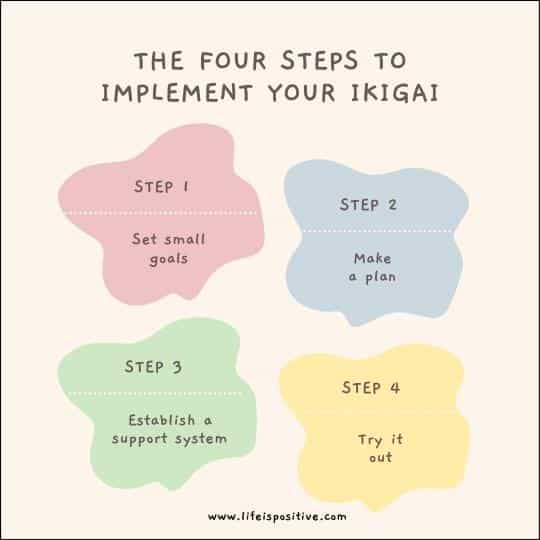
One of the notable aspects of Ikigai is its adaptability.
The authors recognize that the pursuit of one’s purpose is not a one-size-fits-all endeavor.
They acknowledge the dynamic nature of life, encouraging readers to continually reassess and redefine their Ikigai as they evolve.
This fluidity prevents the concept from becoming a rigid set of rules and, instead, positions it as a lifelong companion in the pursuit of happiness and fulfillment.
As the journey through Ikigai unfolds, readers are prompted to reflect not only on their professional lives but also on their relationships, personal development, and overall well-being.
The book introduces the concept of micro-ikigai, emphasizing the significance of finding small doses of joy and purpose in everyday activities.

This micro-level approach encourages individuals to infuse meaning into even the most mundane aspects of life.
By recognizing and cherishing these micro-ikigai moments, readers can cultivate a more profound sense of fulfillment in their daily existence.
The narrative of Ikigai also interweaves the importance of mindfulness and being present in each moment.
The authors advocate for the practice of being fully engaged in whatever one is doing, whether it’s savoring a meal, connecting with a loved one, or pursuing a personal interest.
Read: Habits To Change Your Life Forever
This mindfulness, when integrated into daily life, becomes a transformative force, enhancing the quality of experiences and deepening one’s connection with their Ikigai.
Moreover, the book acknowledges the role of community and social connections in the pursuit of Ikigai.
The authors emphasize the impact of meaningful relationships on overall well-being.
The sense of belonging and shared purpose within a community contributes significantly to an individual’s happiness and fulfillment.
Final Thoughts
LifeisPositive™ Rating ⭐️⭐️⭐️⭐️⭐️
As I close the final chapter of this literary odyssey, a sense of calm settles over me, much like the quiet satisfaction after a perfect cup of tea.
The journey through the pages of “ Ikigai ” has been more than just a reading experience; it’s been a companion in my quest for purpose and joy.
With each turned page, I’ve not only explored the cultural nuances of Ikigai but also unearthed the treasures hidden within myself.
The exercises, ranging from self-assessment questions to thought-provoking prompts, encouraged introspection and self-discovery in me.
By engaging with these activities, I embarked on a personal journey to unveil my passions, talents, mission, and vocation—the four pillars of Ikigai.
Read: 5 Books On Positive Thinking
The authors, likewise mentors, have illuminated the path to my own sweet spot, that magical intersection where passion and purpose dance hand in hand.
Whether you’re navigating the crossroads of your career, relationships, or personal growth, this book offers a compass to guide you toward your Ikigai—a life filled with purpose, passion, and lasting happiness.
As the book gently slips from my hands, I can’t help but feel a renewed sense of clarity and purpose.
The landscapes of Okinawa may fade from my mind, but the wisdom imparted remains, a quiet guide in the hustle of everyday life.
So, dear reader, take a moment to savor the book’s closing lines, for within them lies not just the end of a book but the beginning of a new chapter in your own Ikigai-inspired journey.
May your days be filled with meaning, joy, and the delightful pursuit of your passions.
Until the next adventure beckons, remember: your Ikigai is not just a destination but a lifelong exploration.
Cheers to the journey!
For more empowering content, connect with our vibrant community here ➡️ Social Media .
Latest Posts
The secret to enlightened relationships: unlock deeper connections, how to escape 9-to-5: discover the 4-hour workweek secret, beyond happiness and unhappiness, find your peace now.
RELATED ARTICLES
20 best books for 5 and 6-year-olds that will inspire, did these 5 books really predict the future find out now, 10 easy books for people who don’t like reading, 6 best psychology books on human behavior you’ll love, famous quotes by seneca: 30 powerful quotes to change you, don't miss, 8 red flags you’re in a codependent relationship, 10 must-try tips to skyrocket your self-esteem, everyone should know the 20-second rule for ditching bad habits, cashless society: discover the surprising emotional impact on you, be the first to know.
Get weekly tips, success stories, deals and health hacks straight to your inbox.
The Mission Has Always Been And Continues To Focus On Uplifting The Planet.
- Privacy Policy
- DMCA Policy
- Cookies Policy
- Terms Of Service
What Are Microaggressions? 9 Subtle Insults You Need to Stop Saying
21 confidence-boosting songs to make you feel invincible, 5 secrets you must know to craft your happiness cocktail, subscribe to our newsletter.
Subscribe Now for Uplifting Content and More!
© 2024 LifeisPositive™ All Rights Reserved.

- What is ikigai?
- About Ikigai Living
- Affiliate Disclosure

Book Review: Ikigai: The Japanese Secret to a Long and Happy Life by Hector Garcia and Francesc Miralles

Ikigai: The Japanese Secret to a Long and Happy Life ” by Hector Garcia and Francesc Miralles is a comprehensive guide to discovering and pursuing one’s ikigai .
The authors conducted extensive research and interviewed many of Japan’s centenarians to uncover the secrets to a long and happy life.
The book offers several major takeaways that can help readers find their ikigai and live a more fulfilling life. These include:
The concept of moai, a sound mind in a sound body, adopting an anti-aging attitude, wisdom words/lessons from japan’s centenarians, the authors explain there are ten rules of ikigai..
The ten rules of ikigai provide a roadmap for living a fulfilling life, and include embracing simplicity, spending time in nature, slowing down, following your passions, and cultivating relationships with others.
Stay active and don’t retire
This rule encourages people to stay engaged in activities that bring them joy and purpose, regardless of their age.
Leave urgency behind and adopt a slower pace of life
This rule emphasizes the importance of slowing down and taking time to appreciate life’s simple pleasures.
Only eat until you are 80% full
This rule is based on the traditional Japanese practice of “ hara hachi bu ,” which encourages people to eat mindfully and in moderation.
Surround yourself with good friends
This rule stresses the importance of relationships and social connections for overall well-being and happiness.
Get in shape through daily, gentle exercise
This rule promotes a regular exercise routine, emphasizing the benefits of gentle movements and mindfulness.
Smile and acknowledge others
This rule encourages people to be more social and to engage with others in a positive way.
Reconnect with nature
This rule highlights the importance of spending time in nature and taking in its beauty and wonder.
Give back to your community
This rule emphasizes the importance of making a positive impact on others and contributing to the world in a meaningful way.
Live in the moment
This rule encourages people to be fully present and to enjoy life in the here and now.
Follow your ikigai
This rule is the most important of all, reminding people to always follow their passions, missions, vocations, and professions and to stay true to their purpose in life.
These takeaways are presented in a clear, concise, and engaging manner, making it easy for readers to understand and incorporate them into their own lives. The authors also offer practical exercises and suggestions to help readers find their ikigai and pursue it with purpose and joy.
Overall, “Ikigai: The Japanese Secret to a Long and Happy Life” is an inspiring and transformative book that provides readers with the tools they need to live a more fulfilling and happy life.
Share this:
Similar posts.

Book Review: Ikigai: The Japanese Art of a Meaningful Life by Yukari Mitsuhashi
Amazing read guiding us to examine all aspects of our lives and appreciate the beauty...

31 Amazing Japanese Kit Kat flavors that you have to try!
Yes, the rumors are true! The familiar chocolate treat has been taken to the extreme...

Book Review: My Little Ikigai Journal: A Journey into the Japanese Secret to Living a Long, Happy, Purpose-Filled Life by author Amanda Kudo
Delve into a journey of self-discovery and purpose through thought-provoking questions, inspiring exercises, and uplifting...

Book Review: Ikigai for Leaders and Organizations by Frank Brueck
A book for leaders to determine if their company is balanced and has the potential...

7 Best Ikigai Books to Live a Happy Life
Seven of the best books that deeply explore the significance of ikigai in Japanese culture,...

21 Unique Japanese Gifts for under $21.00
Are you looking for unique gift ideas that won’t break the bank? Here we’ve compiled...

Ikigai Book Review: A Deep Dive into the Heart of Japanese Wisdom
- February 23, 2024
- Book recommendation
In the realm of self-help and lifestyle books, few have captivated the global audience quite like “ Ikigai: The Japanese Secret to a Long and Happy Life ” by Héctor García and Francesc Miralles. This Ikigai book review delves into the heart of Japanese wisdom, offering readers a profound understanding of how to find joy, purpose, and longevity in life .
The concept of Ikigai is not just a philosophy; it’s a way of living that intertwines personal satisfaction with daily purpose. Let’s embark on a journey through the key insights and transformative principles outlined in this influential book.
Understanding Ikigai and Its Origins
Ikigai is a concept deeply ingrained in Japanese culture, embodying a philosophy that intertwines one’s passion, profession, vocation, and mission . Originating from the tranquil island of Okinawa, renowned for its remarkable population of centenarians, Ikigai goes beyond mere enjoyment or fulfillment.
It is considered the bedrock of a long and content life, infusing everyday activities with greater meaning and direction. This concept of finding joy in living by being constantly active and engaged is what distinguishes Ikigai from Western paradigms of happiness or purpose, which often compartmentalize life into work and leisure.
García and Miralles’s insightful exploration into Ikigai reveals how this philosophy is not only about finding one’s singular purpose but also about the harmony and balance in daily endeavors that contribute to overall well-being. The narrative weaves together ancient wisdom with contemporary reflections, illustrating how the principles underlying Ikigai can be adopted universally, despite their roots in Japanese tradition.
Through engaging with the origins and essence of Ikigai, the authors unlock a pathway for readers worldwide to discover and nurture their reason for being , guided by the profound lessons emanating from Okinawa’s shores.
The happiest people are not the ones who achieve the most. They are the ones who spend more time than others in a state of flow. Hector Garcia Puigcerver
The Four Cardinal Rules of Ikigai
The foundation of achieving Ikigai rests on four essential principles that guide individuals towards a harmonious and fulfilling life. These cardinal rules are a roadmap to discovering and living one’s true purpose.
Firstly, the principle of staying active and never fully retiring suggests that purposeful work and activities should continue throughout one’s lifetime . It’s not just about keeping busy, but finding and maintaining engagement in meaningful tasks that give life joy and direction.
Secondly, embracing a slower pace of life is encouraged. This rule, “take it slow,” is about appreciating the moment and allowing oneself the time to enjoy life’s journey without being rushed or pressured by societal expectations. It teaches the value of patience and mindfulness in daily activities.
The third rule, “don’t fill your stomach,” speaks to the practice of moderation, particularly in terms of diet. By eating only until one is 80% full, individuals can promote health and longevity, reflecting a broader philosophy of living without excess and appreciating what one has.
Lastly, the importance of social connections is highlighted in the principle of surrounding oneself with good friends. Meaningful relationships are deemed essential for a happy and long life , suggesting that companionship, support, and community are integral to finding one’s Ikigai.
Together, these rules offer a blueprint for a balanced life, advocating for a combination of personal passions, healthful practices, and strong community bonds. They serve as guideposts for those seeking to infuse their lives with purpose, satisfaction, and longevity.
The Core Concepts of Ikigai
At the heart of Ikigai lies a compelling framework that encourages individuals to explore the confluence of four critical aspects of life: what you are passionate about, what you excel at, what the world needs, and what can sustain you financially. This nexus is crucial for cultivating a life filled with purpose, fulfillment, and contentment.
By navigating through these dimensions, people can identify their unique Ikigai, leading to a profound sense of joy and accomplishment in their daily lives. The book guides readers through this introspective journey with practical exercises and thoughtful questions designed to unlock their personal convergence of these elements.
Additionally, it emphasizes the significance of adaptability and continual self-improvement, suggesting that living in alignment with one’s Ikigai is an evolving process. This concept encourages an ongoing engagement with our passions and skills, alongside a keen awareness of how we can contribute to society in meaningful ways .
By fostering this dynamic balance, individuals can not only achieve personal satisfaction but also make valuable contributions to their communities, embodying the true spirit of Ikigai. The narrative underlines the power of resilience, highlighting its role as a catalyst in overcoming challenges and seizing opportunities for growth and happiness. This exploration of Ikigai’s core concepts serves as a compass for those on the quest to live a deeply rewarding life.
The 80% Rule of Ikigai and Its Importance
One of the more thought-provoking principles shared in “Ikigai: The Japanese Secret to a Long and Happy Life” is known as the 80% rule, or “ Hara Hachi Bu .” Originating from Okinawa, an island celebrated for the longevity of its inhabitants, this guideline encourages individuals to eat until they feel just 80% full. This practice is a cornerstone of the Okinawan diet, reflecting a broader ethos of moderation and self-restraint that contributes significantly to their extended lifespans and overall well-being.
The 80% rule extends beyond dietary habits to encapsulate a broader approach to living. By applying this principle of not overindulging to various aspects of life, such as work, leisure, and consumption, individuals can cultivate a sense of balance and contentment. It teaches the value of listening to one’s body and mind, advocating for a lifestyle that avoids excess and cherishes sufficiency.
This moderation principle also underscores the importance of mindfulness—a key component of Ikigai. By being present and intentional with our actions, whether it’s eating, working, or spending time with loved ones, we can foster deeper satisfaction and a heightened appreciation for the simple pleasures in life. The 80% rule thus emerges not just as a dietary guideline but as a holistic approach to living mindfully and sustainably , paving the way for a happier and more fulfilling existence.
Real-Life Examples of Ikigai
Delving into the heart of Ikigai through real-world illustrations, the book shares captivating stories of individuals whose lives embody the principles of this profound philosophy. A standout narrative involves a centenarian potter who, despite his age, continues to find immense joy and fulfillment in molding clay.
His dedication to his craft not only provides him with a deep sense of purpose but also connects him with a community that appreciates his art , showcasing how Ikigai flourishes at the intersection of passion and societal contribution. Another inspiring example is a woman in her late 80s who runs a small café. For her, the café is more than just a business; it’s a place where she can express her love for cooking and create a welcoming space for people to gather.
Her daily interactions with customers and the creative process of preparing food keep her actively engaged and fulfilled, illustrating the essence of Ikigai in finding contentment and purpose in daily activities. These stories vividly demonstrate how Ikigai manifests in diverse ways, from artistic expression to community service, and how it contributes to a rich, satisfying life. They serve as a testament to the idea that Ikigai is attainable by anyone, anywhere, so long as they seek to align their actions with their passions, skills, and the needs of the world around them.
The True Meaning of Ikigai and Its Impact on Our Lives
“Ikigai: The Japanese Secret to a Long and Happy Life” unravels a profound narrative that intertwines purpose, passion, and daily practice, offering a refreshing perspective on achieving a balanced and fulfilling existence. At its core, Ikigai champions a harmonious blend of personal passions with the necessities of the world around us, prompting an introspective journey towards self-discovery and contentment . This philosophy underscores the significance of mindfulness and resilience, urging us to navigate life’s ebbs and flows with grace and intentionality.
The impact of Ikigai on our lives extends far beyond the pursuit of individual passions; it fosters a deep-seated connection to our communities, enriching our lives and those of others through meaningful engagement. By advocating for a life that balances joy with responsibility, Ikigai encourages us to contribute positively to our surroundings, enhancing our sense of belonging and purpose.
Embracing the principles of Ikigai invites a transformative approach to daily living, where every action and choice is infused with intention and meaning. It prompts us to consider not just the pursuit of personal fulfillment but also the broader implications of our actions on societal well-being. In doing so, Ikigai offers a compelling blueprint for a life well-lived, marked by a steadfast pursuit of harmony, sustainability, and genuine happiness. Through this lens, we are reminded that true contentment arises not from transient achievements, but from the steady, mindful pursuit of a life aligned with our deepest values and aspirations.
[email protected]
Related posts.

Lifespan Book Review: Exploring David A. Sinclair’s Secrets to Youth
- February 18, 2024

Atomic Habits book – Making small changes for better habits
- January 22, 2023

Understanding Life Challenges: The Obstacle Is the Way Summary by Ryan Holiday
- February 21, 2024
Leave a Reply Cancel Reply
Your email address will not be published. Required fields are marked *
Name *
Email *
Add Comment *
Save my name, email, and website in this browser for the next time I comment.
Post Comment
- Skip to content
- Skip to footer
| The Art of Living for Students of Life
“Ikigai: The Japanese Secret to a Long and Happy Life” by Héctor García and Francesc Miralles (Book Summary)
By Kyle Kowalski · 26 Comments
This post is a book summary of Ikigai: The Japanese Secret to a Long and Happy Life ( Amazon ) by Héctor García and Francesc Miralles.

I was hoping this book would be a deep dive into the “how” of ikigai. However, it’s more of an introduction to a variety of different topics including: the Blue Zones , logotherapy , longevity, flow, tai chi, yoga, resilience, and more. If you’re new to those topics, then this is the book for you!
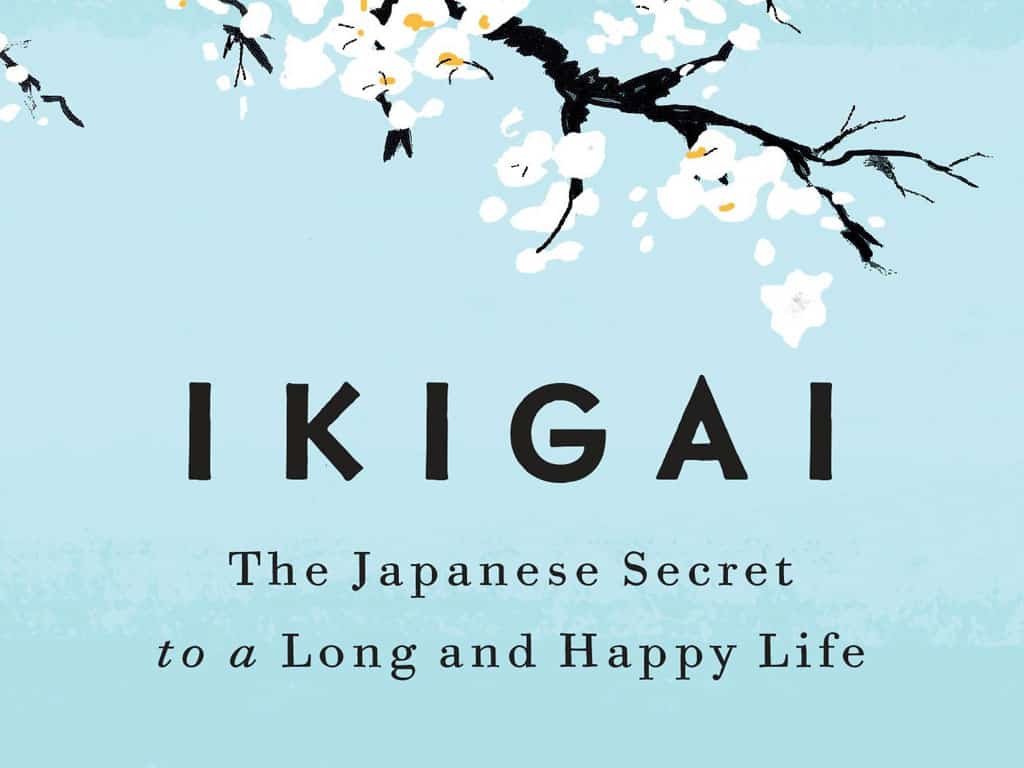
Quick Summary of the book Ikigai: The Japanese Secret to a Long and Happy Life
- As mentioned above, this book covers many topics related to the “ art of living .”
- The authors define ikigai and the rules of ikigai—they conducted a total of one hundred interviews in Ogimi, Okinawa to try to understand the longevity secrets of centenarians and supercentenarians.
- “What do Japanese artisans, engineers, Zen philosophy, and cuisine have in common? Simplicity and attention to detail.”
- “The authors of this book wish you a long, happy, and purposeful life.”
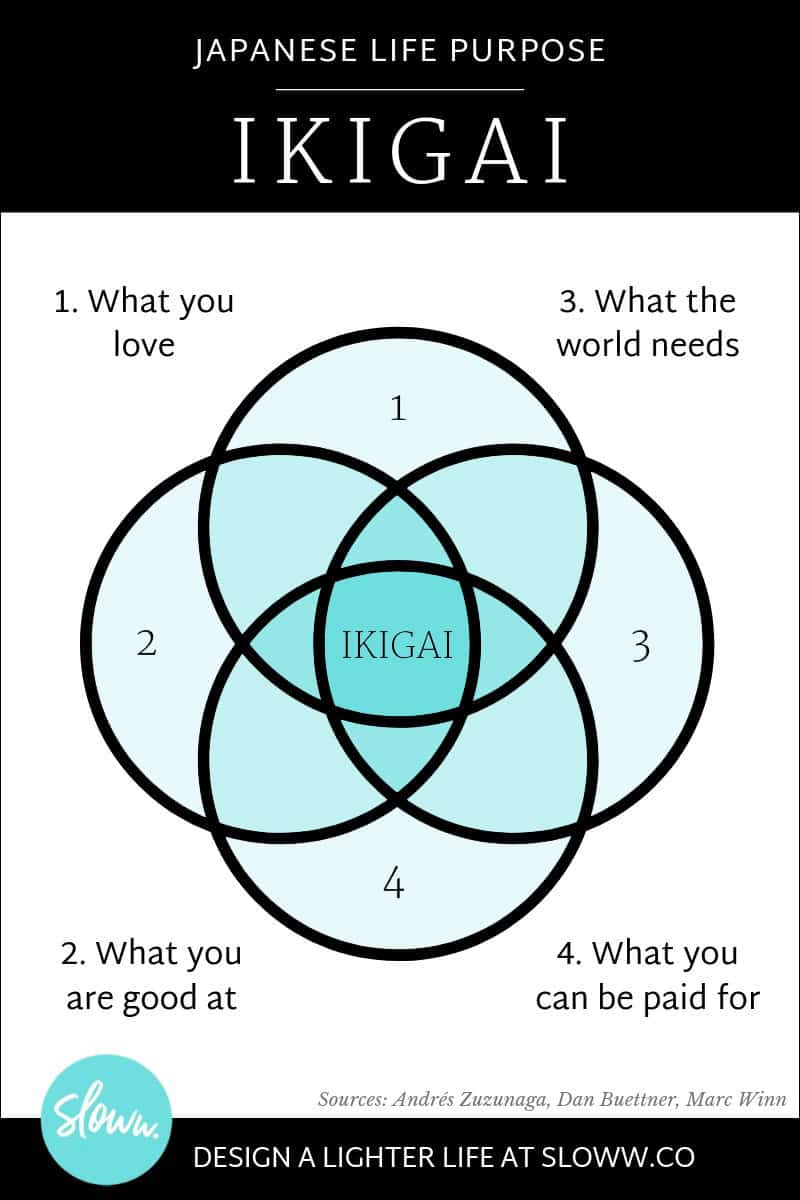
What is Ikigai?
- In Japanese, ikigai is written by combining the symbols that mean “life” with “to be worthwhile.”
- “Translates roughly as ‘the happiness of always being busy.'” (Note: I believe they mean “busy” in the sense of living a full life vs busy life )
- “There is a passion inside you, a unique talent that gives meaning to your days and drives you to share the best of yourself until the very end. If you don’t know what your ikigai is yet, as Viktor Frankl says, your mission is to discover it.” (Note: Viktor Frankl is the author of Man’s Search for Meaning )
- “Our ikigai is different for all of us, but one thing we have in common is that we are all searching for meaning . When we spend our days feeling connected to what is meaningful to us, we live more fully; when we lose the connection, we feel despair.”
- “Our ikigai is hidden deep inside each of us, and finding it requires a patient search. According to those born on Okinawa, the island with the most centenarians in the world, our ikigai is the reason we get up in the morning.”
- “Once you discover your ikigai, pursuing it and nurturing it every day will bring meaning to your life.”
- “They have an important purpose in life, or several. They have an ikigai, but they don’t take it too seriously. They are relaxed and enjoy all that they do.”
- “One thing that everyone with a clearly defined ikigai has in common is that they pursue their passion no matter what.”
The 10 Rules of Ikigai
- Stay active; don’t retire.
- Take it slow.
- Don’t fill your stomach.
- Surround yourself with good friends.
- Get in shape for your next birthday.
- Reconnect with nature.
- Give thanks.
- Live in the moment.
- Follow your ikigai.

Ikigai Book Highlights
Stress & Existential Crisis:
- “Many people seem older than they are. Research into the causes of premature aging has shown that stress has a lot to do with it.”
- “The American Institute of Stress investigated this degenerative process and concluded that most health problems are caused by stress.”
- “ Existential crisis , on the other hand, is typical of modern societies in which people do what they are told to do , or what others do, rather than what they want to do. They often try to fill the gap between what is expected of them and what they want for themselves with economic power or physical pleasure, or by numbing their senses.”
- “Those who give up the things they love doing and do well lose their purpose in life. That’s why it’s so important to keep doing things of value, making progress, bringing beauty or utility to others, helping out, and shaping the world around you, even after your ‘official’ professional activity has ended.”
Morita Therapy:
- “Many Western forms of therapy focus on controlling or modifying the patient’s emotions. In the West, we tend to believe that what we think influences how we feel, which in turn influences how we act. In contrast, Morita therapy focuses on teaching patients to accept their emotions without trying to control them, since their feelings will change as a result of their actions.”
- “Logotherapy and Morita therapy are both grounded in a personal, unique experience that you can access without therapists or spiritual retreats: the mission of finding your ikigai, your existential fuel. Once you find it, it is only a matter of having the courage and making the effort to stay on the right path.”
- “The happiest people are not the ones who achieve the most. They are the ones who spend more time than others in a state of flow.”
- “In order to achieve this optimal experience, we have to focus on increasing the time we spend on activities that bring us to this state of flow, rather than allowing ourselves to get caught up in activities that offer immediate pleasure.”
- “ Concentrating on one thing at a time may be the single most important factor in achieving flow.”
- “Japanese people often apply themselves to even the most basic tasks with an intensity that borders on obsession.”
- “Our ability to turn routine tasks into moments of microflow, into something we enjoy, is key to our being happy, since we all have to do such tasks.”
- “Artists, for example, who carry the torch of their ikigai instead of retiring, have this power. Art, in all its forms, is an ikigai that can bring happiness and purpose to our days. Enjoying or creating beauty is free, and something all human beings have access to.”
- “Artists know how important it is to protect their space, control their environment, and be free of distractions if they want to flow with their ikigai.”
- “Many such artists might seem misanthropic or reclusive, but what they are really doing is protecting the time that brings them happiness, sometimes at the expense of other aspects of their lives. They are outliers who apply the principles of flow to their lives to an extreme.”
- 1. To be in a distraction-free environment
- 2. To have control over what we are doing at every moment
Ogimi, Okinawa:
- “We realized right away that time seems to have stopped there, as though the entire town were living in an endless here and now .”
- “Many Japanese people never really retire—they keep doing what they love for as long as their health allows.”
- “The Japanese are skilled at bringing nature and technology together: not man versus nature, but rather a union of the two.”
- “Okinawans live by the principle of ichariba chode , a local expression that means ‘treat everyone like a brother, even if you’ve never met them before.'”
- Celebrations seem to be an essential part of life in Ogimi.
Slow Living :
- “Being in a hurry is inversely proportional to quality of life. As the old saying goes, ‘Walk slowly and you’ll go far.’ When we leave urgency behind, life and time take on new meaning.”
- “Looking back, our days in Ogimi were intense but relaxed—sort of like the lifestyle of the locals, who always seemed to be busy with important tasks but who, upon closer inspection, did everything with a sense of calm. They were always pursuing their ikigai, but they were never in a rush.”
- “They are always busy , but they occupy themselves with tasks that allow them to relax. We didn’t see a single old grandpa sitting on a bench doing nothing.”
- “The restaurant is right by the sea and seems like something from the planet Tatooine, from Star Wars. The menu boasts in large letters that it serves ‘ slow food ‘ prepared with organic vegetables grown in the town.”
Secrets of the Centenarians & Supercentenarians:
- Don’t worry
- Cultivate good habits
- Nurture your friendships every day
- Live an unhurried life
- Be optimistic”
- “Eat and sleep, and you’ll live a long time. You have to learn to relax.” — Misao Okawa (117 years old)
- “I’ve never eaten meat in my life.” — María Capovilla (116)
- “Everything’s fine.” — Jeanne Calment (122)
- “Your mind and your body. You keep both busy, you’ll be here a long time.” — Walter Breuning (114)
- “I just haven’t died yet.” — Alexander Imich (111)
- “Food won’t help you live longer…The secret is smiling and having a good time.”
- “My secret to a long life is always saying to myself, ‘ Slow down ,’ and ‘Relax.’ You live much longer if you’re not in a hurry.”
- “The key to staying sharp in old age is in your fingers. From your fingers to your brain, and back again. If you keep your fingers busy, you’ll live to see one hundred.”
Longevity Diet:
- “One hundred percent of the people we interviewed keep a vegetable garden, and most of them also have fields of tea, mangoes, shikuwasa, and so on.”
- “Locals eat a wide variety of foods, especially vegetables. Variety seems to be key. A study of Okinawa’s centenarians showed that they ate 206 different foods, including spices, on a regular basis. They ate an average of eighteen different foods each day, a striking contrast to the nutritional poverty of our fast-food culture.”
- “They eat at least five servings of fruits and vegetables every day. At least seven types of fruits and vegetables are consumed by Okinawans on a daily basis. The easiest way to check if there is enough variety on your table is to make sure you’re ‘eating the rainbow.’ A table featuring red peppers, carrots, spinach, cauliflower, and eggplant, for example, offers great color and variety. Vegetables, potatoes, legumes, and soy products such as tofu are the staples of an Okinawan’s diet. More than 30 percent of their daily calories comes from vegetables.”
- “Grains are the foundation of their diet. Japanese people eat white rice every day, sometimes adding noodles. Rice is the primary food in Okinawa, as well.”
- “Eat fish an average of three times per week.”
- “Consume fewer calories: an average of 1,785 per day, compared to 2,068 in the rest of Japan. In fact, low caloric intake is common among the five Blue Zones .”
- “Tofu, Miso, Tuna, Carrots, Goya (bitter melon), Kombu (sea kelp), Cabbage, Nori (seaweed), Onion, Soy sprouts, Hechima (cucumber-like gourd), Soybeans (boiled or raw), Sweet potato, Peppers”
- “Okinawans drink more Sanpin-cha—a mix of green tea and jasmine flowers—than any other kind of tea…Okinawans drink an average of three cups of Sanpin-cha every day.”
- “White tea, with its high concentration of polyphenols, may be even more effective against aging. In fact, it is considered to be the natural product with the greatest antioxidant power in the world—to the extent that one cup of white tea might pack the same punch as about a dozen glasses of orange juice.”
Other Memorable Quotes:
- “ We are what we repeatedly do. Excellence, then, is not an act but a habit.” — Aristotle
- “To be able to concentrate for a considerable amount of time is essential to difficult achievement.” — Bertrand Russell
- “The grand essentials to happiness in this life are something to do, something to love, and something to hope for.” — Washington Burnap
- “Everything can be taken from a man but one thing: the last of the human freedoms—to choose one’s attitude in any given set of circumstances, to choose one’s own way.” — Viktor Frankl
- “Nana korobi ya oki (Fall seven times, rise eight.)” — Japanese proverb
- “Metabolism slows down 90 percent after 30 minutes of sitting. The enzymes that move the bad fat from your arteries to your muscles, where it can get burned off, slow down. And after two hours, good cholesterol drops 20 percent. Just getting up for five minutes is going to get things going again. These things are so simple they’re almost stupid.” — Gavin Bradley
Have you read the book or found your ikigai? Please share what was most beneficial for you in the comments.
You can check out all of my book summaries here .
You May Also Enjoy:
- Get the new eBook: Ikigai 2.0: A Step-by-Step Guidebook to Finding Life Purpose & Making Money Meaningfully (+ Bonus Workbook)
- How the Japanese Wake Up to Joy and Purpose: “Awakening Your Ikigai” by Ken Mogi (Book Summary)
- The Truth about Ikigai: Definitions, Diagrams & Myths about the Japanese Life Purpose
- Ikigai 2.0: Evolving the Ikigai Diagram for Life Purpose (& Why and How it Needs to be Redesigned)
- My Ikigai 2.0 — A Detailed Personal Ikigai Example of How to Find Your Life Purpose
About Kyle Kowalski
👋 Hi, I'm Kyle―the human behind Sloww . I'm an ex-marketing executive turned self-education entrepreneur after an existential crisis in 2015. In one sentence: my purpose is synthesizing lifelong learning that catalyzes deeper development . But, I’m not a professor, philosopher, psychologist, sociologist, anthropologist, scientist, mystic, or guru. I’m an interconnector across all those humans and many more—an "independent, inquiring, interdisciplinary integrator" (in other words, it's just me over here, asking questions, crossing disciplines, and making connections). To keep it simple, you can just call me a "synthesizer." Sloww shares the art of living with students of life . Read my story.
Sloww participates in the Amazon Services LLC Associates Program. When you purchase a book through an Amazon link, Sloww earns a small percentage at no additional cost to you. This helps fund the costs to support the site and the ad-free experience.
Reader Interactions
August 22, 2018 at 10:21 AM
Kyle Kowalski, thanks a lot for the post. Really thank you! Much obliged.
August 22, 2018 at 10:50 AM
Sure thing! Glad it was helpful.
November 23, 2018 at 10:51 PM
Live slow, seems to be important.
November 24, 2018 at 12:37 AM
Yes, Kazim! It seems all good things start with slowing down.
January 21, 2019 at 10:17 AM
Ikigai is magical!! It is living life the way you want, at a slower pace and enjoying every moment of it!! Thanks Kyle!
January 25, 2019 at 10:51 AM
I agree, Nirmaladevi! Ikigai has been one of the most life-changing concepts I’ve discovered in the last few years.
December 15, 2019 at 4:09 AM
I too will read it.Thank you.
December 16, 2019 at 10:38 PM
January 8, 2022 at 10:51 PM
I have ikigai book and I am eager to read that hope I like it✨ Thank you so much kyle
August 1, 2020 at 7:24 AM
One more thing I want to add on is that this book also gave us a way to the reality that stay with those thoughts in which you can easily confide in and enjoy your life
August 4, 2020 at 10:51 PM
March 4, 2019 at 9:03 AM
Living in the now! That’s the most important. And cherishing life.
March 6, 2019 at 2:34 PM
Life only happens in the now! Good thoughts, Ranjit. You may like this: A Deep Look at “A New Earth” by Eckhart Tolle (Book Summary #1)
March 21, 2019 at 10:46 AM
Live a simple life try to see happiness in small things.
March 28, 2019 at 1:41 AM
You got it, Raju!
January 8, 2020 at 6:24 AM
Really good. It helped me a lot. I am going to teach these concepts in my courses (yes that’s My Ikigai) about goal setting and life mission.
January 14, 2020 at 9:47 AM
Fantastic, Hadi!
January 9, 2020 at 6:23 PM
Hi Kyle, I loved this book summary on Ikigai a lot. I have shared it on my LinkedIn page so that other people can know about it too. Hope you don’t mind. Your website is amazing, very meaningful posts and the layout is so simple. I look forward to reading a lot more about the art of living on your other posts. Thank you very much.
January 14, 2020 at 9:48 AM
Awesome, thanks for sharing Keya! The more the merrier. I greatly appreciate the kind words about Sloww 🙂
February 5, 2020 at 1:36 AM
hey kyle, the most amazing thing is that you are replying to everyone since 2018, well i actually need to read this book, so i am going to start it, here i was seeing what is the concept of this book. Thank you
February 5, 2020 at 8:37 AM
Hey Isha! Yes, I’ve always tried to respond to every single comment on all posts since the site launched. Enjoy the book!
October 23, 2020 at 8:54 PM
Hi Kyle, thank you so much for your post. It benefits me a lot. This help in my thesis writing and I will use this with my family.
November 25, 2020 at 12:39 AM
So happy to hear that, Cho Lye Yin!
August 18, 2021 at 6:55 PM
December 4, 2021 at 8:59 AM
I have found the book very interesting and helpful to understand my ‘self’ .
July 29, 2022 at 9:47 PM
Wonderful, Benudhar!
Leave a Reply Cancel reply
Your email address will not be published. Required fields are marked *

Popular Posts
Join the sloww movement.
📧 10,000+ lifelong learners read the Sloww Sunday newsletter (+ free eBook "The Hierarchy of Happiness"):
🆕 Synthesizer Course

Sloww Premium

Sloww Social
Check out my shop on redbubble
My Mindfulness Journey Blog
Book Review: Ikigai – The Japanese Secret to a Long and Happy Life
Published by

In the quest for a meaningful life, the concept of “ikigai” offers a fascinating perspective. The book Ikigai: The Japanese Secret to a Long and Happy Life by Hector Garcia and Francesc Miralles delves into this Japanese philosophy, exploring the principles that can lead to a longer, happier, and more fulfilled life. Having recently listened to the audiobook, I found it both enlightening and challenging, with a few personal reflections along the way.
Understanding Ikigai
Ikigai, a Japanese term, translates to “a reason for being.” It is often depicted as the intersection of what you love, what you are good at, what the world needs, and what you can be paid for. The book explores how this concept is deeply embedded in the culture of Okinawa, a region known for its high number of centenarians.

Key Takeaways from the Book
The authors present various stories and research findings that illustrate how the inhabitants of Okinawa live their ikigai daily. The book emphasizes the importance of finding balance, maintaining physical activity, eating a healthy diet, and staying socially connected.

The 10 Rules of Ikigai
At the end of the book, Garcia and Miralles outline ten rules that encapsulate the essence of ikigai. These rules are meant to guide readers towards discovering and nurturing their own ikigai:
- Stay active and don’t retire – Keep your mind and body busy with activities you enjoy.
- Take it slow – Embrace the slow life and avoid rushing through your day.
- Don’t fill your stomach – Eat moderately and mindfully.
- Surround yourself with good friends – Foster strong social connections.
- Get in shape for your next birthday – Stay physically active.
- Smile – Cultivate a positive attitude and find reasons to smile.
- Reconnect with nature – Spend time outdoors and appreciate the natural world.
- Give thanks – Express gratitude for what you have.
- Live in the moment – Focus on the present rather than dwelling on the past or worrying about the future.
- Follow your ikigai – Pursue what you love and what gives your life meaning.
Personal Reflections
While I thoroughly enjoyed the audiobook, I found the principles challenging to apply to my own life. The idea of balancing all four components of ikigai—what you love, what you are good at, what the world needs, and what you can be paid for—can feel overwhelming. Despite this, the book has inspired me to reflect deeply on my passions and skills.
Perhaps my ikigai lies in writing. This process of crafting a review, sharing insights, and engaging with readers brings me joy and fulfillment. Writing allows me to express myself creatively, connect with others, and contribute something valuable to the world.
Ikigai: The Japanese Secret to a Long and Happy Life is a thought-provoking read that offers timeless wisdom. While finding and living your ikigai might seem daunting, the journey itself can be incredibly rewarding. Whether your ikigai is writing, helping others, or something entirely different, the principles in this book provide a valuable framework for discovering and nurturing it.
For those seeking a deeper understanding of ikigai and its application, this book is a must-read. Even if you don’t find your ikigai immediately, the exploration will undoubtedly bring you closer to a more meaningful and fulfilled life.
Share this:
Leave a comment cancel reply, i’m sajida.

Welcome to My Mindfulness Journey, a personal blog that documents my experience with mindfulness and meditation. The blog covers topics such as the benefits of mindfulness, the challenges of being mindful, the tools and techniques for practicing mindfulness, and my reflections on my journey.
Let’s connect
Join the fun.
Stay updated with our latest tutorials and ideas by joining our newsletter.
Type your email…
Recent posts

All the Lefthanders, Put Your Left Hand Up!

What Brings You Peace? Exploring the Path to Inner Calm

5 Exercises That Can Help You Get Better Sleep

Gizmo the Chihuahua Reunites with Owners After 9 Years

10 Perfect Gift Ideas for Book Lovers, Writers, and Mindfulness Enthusiasts

- Already have a WordPress.com account? Log in now.
- Subscribe Subscribed
- Copy shortlink
- Report this content
- View post in Reader
- Manage subscriptions
- Collapse this bar

Strategy Boffins
Book reviews, ikigai: the japanese secret to a long and happy life, once you discover your ikigai, pursuing it and nurturing it every day will bring meaning to your life. the moment your life has this purpose, you will achieve a happy state of flow in all you do., subjects: work life balance.
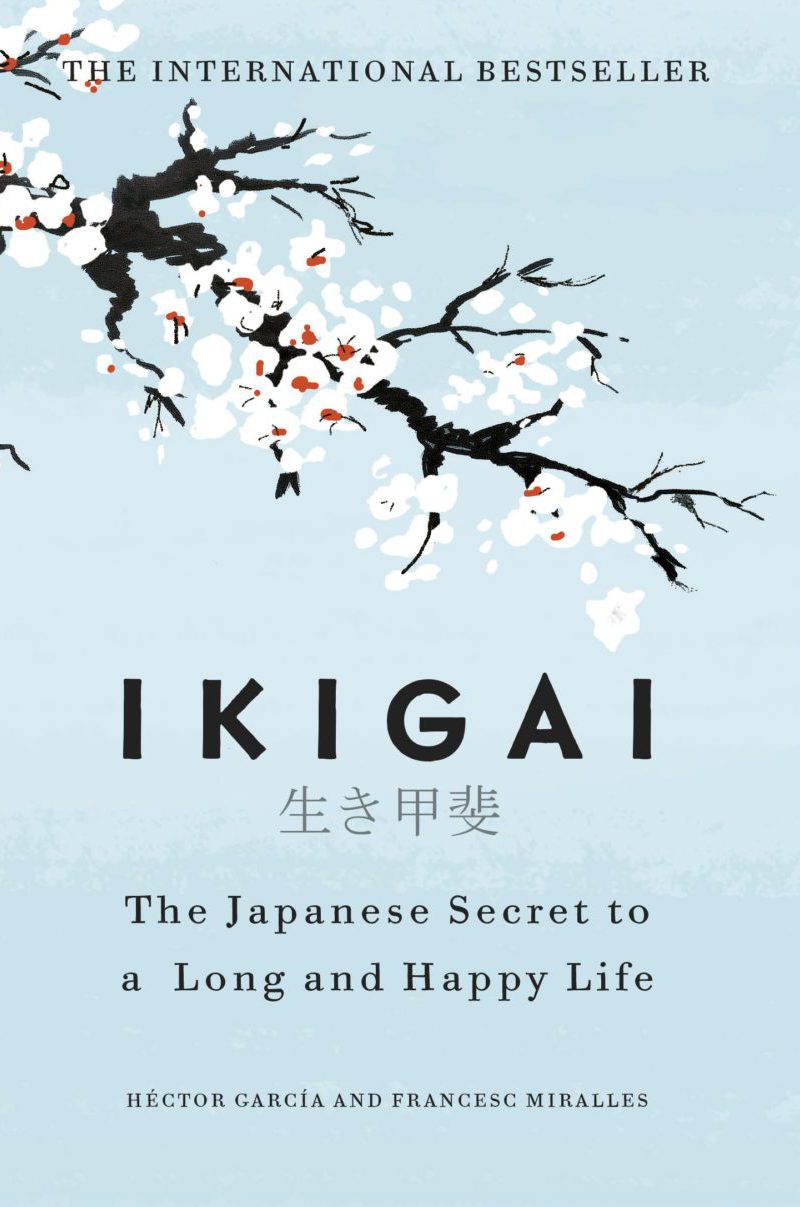
The book Ikigai: The Japanese secret to a long and happy life is divided in four parts – Finding your purpose, Achieving flow, living here & now and little changes one can do in life like diet and exercise.
Finding your purpose through logo therapy by famous Viktor Frankl who wrote Man’s Search For Meaning: The classic tribute to hope from the Holocaust is explained very nicely. Morita Therapy which i personally found very useful is given which is also integral to Ikigai. Morita explained the idea of letting go negative feelings in his book Morita Therapy and the True Nature of Anxiety-Based Disorders
Flow has been pioneered by Csikszentmihalyi in the book Flow: The Classic Work On How To Achieve Happiness: The Psychology of Happiness. Authors Hector Garcia and Francesc Miralles build on the concept of flow through their examples of Takumis, engineers, geniuses, and otakus. A very interesting story of Steve Jobs visiting Takumi in Japan. And the story of Richard Feynman painting walls and soldering circuits reenforces the idea of Flow.
Authors travelled extensively in Japan, and interview many supercentenarian. They have compiled a very impressive list of traditions, rituals, diets, exercises for happiness and logevity – from Yoga to Qingong.
The book ends with resilience and wabi-sabi.
“Wabi-sabi is a Japanese concept that shows us the beauty of the fleeting, changeable, and imperfect nature of the world around us. Instead of searching for beauty in perfection, we should look for it in things that area flawed, incomplete.”
It briefly touches on anti-fragility from the book Antifragile: Things that Gain from Disorder by Nicholas Taleb.
“Life is pure imperfection, as the philosophy of wabi-wabi teaches us, and the passage of time shows us that everything is fleeting, but if you have a clear sense of your ikigai, each moment will hold so many possibilities that it will seem almost like an eternity”
The book is a wonderful read, and takes us right into lives of Japanese people and reasons why they live long, their attention to detail and probably why they don’t mind doing repetitive tasks which is frowned upon in the western world.
Book Review: Deep Work by Cal Newport
Book review: seeking wisdom: from darwin to munger by peter bevelin, book review: the power of habit, book review: boston consulting group on strategy, book review: trading against the crowd, book review: design thinking toolbox, book review: 13 things mentally strong people don’t do, book review: i’m ok–you’re ok, book review: the strategist’s toolkit, book review: strategy beyond the hockey stick, book review: competitive strategy by michael e. porter, book review: reinvent your business model, book review: freakonomics by steven d. levitt, book review: happy money ken honda, book review: emotional intellience daniel goleman, book review: an ugly truth -facebook, book review: the little book of hygge, book review: how the world really works, book review: average is over – artificial intelligence, book review: mastering the market cycle.
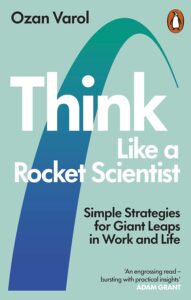
Collections
Captivating.
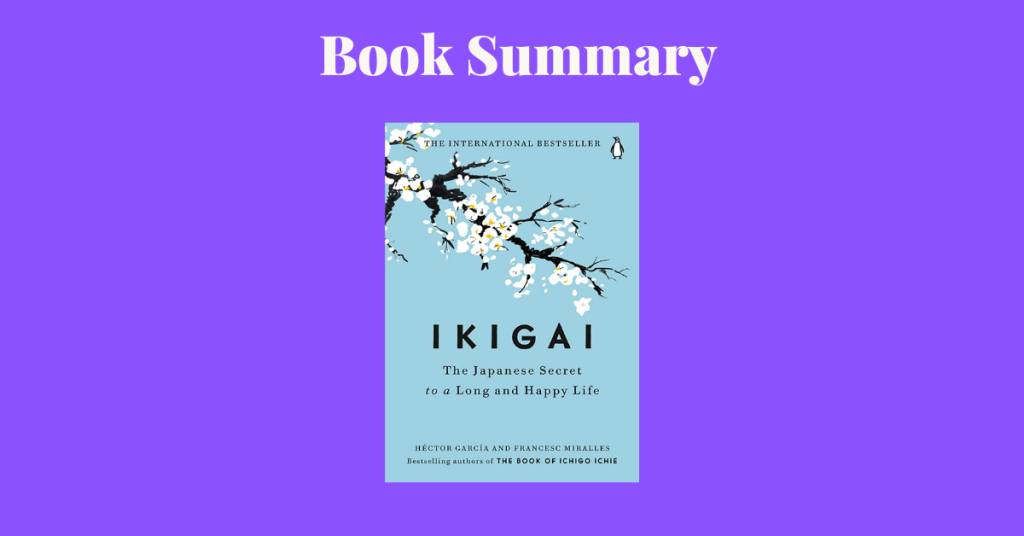
IKIGAI: The Japanese Secret to a Long and Happy Life Summary, Review, Notes
The primary takeaways from this book are how to live a better and happier life while also extending your lifespan.
Héctor Garcia and Francesc Miralles, authors of the book “Ikigai: The Art of Finding Your True North,” provide a definition of the term as well as an exposition of its underlying concepts.
To gain a deeper understanding of this occurrence, researchers in Ogimi, Okinawa, spoke with one hundred of the island’s centenarians and supercentenarians.
What we think about, we bring about. Several research has come to the conclusion that stress is the key component that contributes to an accelerated aging process.
The writers of this book believe that the concept of ikigai is a significant factor in both the extraordinarily high quality of life enjoyed by Japanese people and their exceptionally long-life expectancy.
Book Title— Ikigai, The Japanese Secret to a Long and Happy Life Author— Héctor García and Francesc Miralles Date of Reading— February 2023 Rating— 8/10
What Is Being Said in Detail
Prologue. ikigai: a mysterious word.
The book’s prologue lays the groundwork for the investigation of ikigai and its significance in Japanese culture.
The author discusses his personal experience of living in Japan and how the culture and manner of life there captivated him.
Although Japan is frequently thought of as a nation of invention and technology, the author emphasizes that it is also a nation with a strong regard for tradition and an emphasis on mindfulness and simplicity.
The author observes that this cultural perspective has produced a special approach to health and wellbeing that places a premium on balance, harmony, and purpose.
CHAPTER 1. Ikigai. The Art of Staying Young While Growing Old
The first chapter of the book introduces the concept of ikigai, which translates as “a reason for being” or “ a purpose in life ” in Japanese.
Ikigai’s origins and how it has been studied by researchers and philosophers over the years are further explored in the chapter.
While there is no one-size-fits-all definition of ikigai, the author notes that it generally refers to the things that give our lives meaning and purpose, Ikigai has to be something you’re good at, something that you love, something that the world need and something that you can be paid for.
The author explains that while Japan is often associated with technology and innovation, it is also a country with a deep respect for tradition and a focus on simplicity and mindfulness.
He notes that this cultural mindset has led to a unique approach to health and wellness, one that values balance, harmony, and purpose.
The island of Okinawa holds the first place among the world’s Blue Zones where the community practices Moai, which is an informal group of people with common interests that look out for one another, they serve the community.
CHAPTER 2. Antiaging Secrets. Little Things that Add Up to a Long and Happy Life
The author reveals the secrets to living a long life in this chapter:
- Younger body, active mind. Because the mind and body are inextricably linked, having a youthful mind motivates you to live a healthy lifestyle that will slow the aging process. We suffer from a lack of mental exercise because it causes our neurons and neural connections to deteriorate.
- Eliminate long-term stress. The majority of health issues are caused by living in a constant state of stress.
- A little stress is beneficial. Low levels of stress can be beneficial to our health.
- Continue to be active. Sedentary behavior contributes to a variety of diseases; make a few changes to your routine, such as walking to work, taking the stairs instead of the elevator, playing with children or pets, and being mindful.
- Sleep between 9 and 10 hours per night. This is an important antiaging tool because when we sleep, we produce melatonin, a powerful antioxidant that strengthens the immune system.
- Maintain a positive attitude. Having a calm or stoic attitude toward life’s challenges can help us stay young by reducing anxiety and stress and stabilizing behavior.
CHAPTER 3. From Logotherapy to Ikigai. How to Live Longer and Better by Finding Your Purpose
Logotherapy assists you in discovering reasons to live. The author breaks down the procedure into five steps:
- A person feels empty, frustrated, or anxious.
- The therapist demonstrates to him that what he is experiencing is a desire to live a meaningful life.
- The patient discovers the meaning of his life (at that particular point in time).
- The patient chooses whether to accept or reject his fate of his own free will.
- His newfound enthusiasm for life aids him in overcoming obstacles and sorrows.
The author also discusses Morita therapy, which was developed in Japan prior to Logotherapy. In Japan, Shoma Morita developed his own purpose-centered therapy.
Because their feelings will change as a result of their actions, Morita therapy focuses on teaching patients to accept their emotions without trying to control them. Its fundamental principles are as follows:
- Accept your feelings.
- Carry out your responsibilities.
- Determine your life’s purpose.
This relates to Ikigai in that both Logotherapy and Morita therapy are based on a personal, one-of-a-kind experience that you can access without the help of therapists or spiritual retreats: the mission of discovering your ikigai, or existential fuel.

CHAPTER 4. Find Flow in Everything You Do. How to Turn Work and Free Time Into Spaces for Growth
When you give yourself over to anything, you forget about the passage of time. Every second seems like an hour when you’re doing something you really don’t want to do.
Flow refers to the state of engrossment one experiences when performing an activity one enjoys.
According to Mihaly Csikszentmihalyi, flow is the experience of bliss, joy, inspiration, and flow that comes from being fully present in the moment.
You need to go into a state of flow, have an “ideal experience” if you wish to live according to ikigai.
The author cites Owen Schaffer, a researcher at DePaul University, who lists “knowing what to do” as one of the conditions necessary to enter a state of flow:
Having the requisite skill to accomplish the task.
- Knowing what to do.
- Knowing how to do it.
- Knowing how well you are doing.
- Knowing where to go (where navigation is involved)
The author provides us with three approaches to this:
- Choose the challenging option (but not too difficult). It’s a challenge since it’s within our capabilities but yet a little bit of a reach. Our desire to persevere to the finish of a struggle is rooted in the pleasure we take in the sensation of mental and physical exertion.
- Know what it is you’re trying to accomplish and make it crystal clear. Whilst your journey may not be without twists and turns, keep in mind that you will reach your destination far sooner and more effectively than if you had followed a predetermined course.
- Focus on what you’re doing. While it may seem logical to perform multiple jobs at once in order to save time, studies have shown that this is actually not the case.
It is also stated that our ability to transform mundane work into moments of microflow, into something we enjoy, is critical to our happiness, because we all have to complete such tasks.
You can locate your Ikigai by engaging in pursuits that put you in a state of flow.
CHAPTER 5. Master of Longevity. Words of Wisdom from the Longest-Living People in the World
The author interviewed supercentenarians—people who live to be 110 years old or more—in Okinawa, which has its own chapter.
Misao Okawa (117), Mara Capovilla (116), Jeanne Calment (122), Walter Breuning (114), and Alexander Imich (111) are among the interviewees.
García also draws inspiration from elderly people who continue to carry the ikigai torch rather than retiring.
CHAPTER 6. Lessons from Japan’s Centenarians. Traditions and Proverbs for Happiness and Longevity
In this chapter, the author recounts his visit to Ogimi, Okinawa’s capital, also known as the Village of Longevity, to interview the community’s oldest members.
They noticed the lack of traffic as soon as they arrived. Houses were strewn about the mountain and seascape.
Ogimi residents have a vibrant social life centered on community centers. Volunteering is essential because everyone can contribute and feel like they are a part of the community.
Celebrations and spirituality are an important part of village life and contribute to the happiness of the residents.
The locals live an intense but relaxed lifestyle; they appeared to be preoccupied with important tasks but went about their business calmly.

The following were the most significant statements derived from the interviews:
- Don’t be concerned
- Develop good habits
- Maintain your friendships on a daily basis.
- Live an unhurried life
- Be optimistic
CHAPTER 7. The Ikigai Diet. What the World’s Longest-Living People Eat and Drink
Okinawa was one of the most devastated areas of Japan during WWII.
As a result of not only battlefield conflicts, but also hunger and a lack of resources after the war. However, as Okinawans recovered from the devastation, they became some of the country’s longest-living citizens.
The following are the fundamentals of the Okinawa diet:
- Consume a wide variety of foods, particularly vegetables.
- Every day, consume at least five servings of fruits and vegetables.
- Grains are the foundation of the diet; consume white rice on a daily basis.
- Rarely eat sugar, and if you do, use cane sugar.
They also follow the Japanese rule of Hara hachi bu, also known as the 80% rule. When you realize you’re almost full but could eat a little more, just stop! You can make it easier by skipping dessert, reducing portion size, or fasting one or two days per week.
Okinawans consume a variety of natural antioxidants, including tofu, miso, tuna, carrots, kombu, nori, and soy sprouts.
Okinawans drink Sanpin-cha, which is a mix of green tea and jasmine flowers, and they also drink the juice of shikuwasa, which is a citrus fruit that is used not only for juices but also in traditional dishes.
CHAPTER 8. Gentle Movements, Longer Life. Exercises from the East that Promote Health and Longevity
People who move around the most are the ones who live the longest, not the ones who work out the most. The people who live in Ogimi are very active. They walk a lot, get up early , and work in their gardens.
If you live in a city, it may be hard to move every day in a natural and healthy way because we tend to sit more. There are many Eastern practices that we can do at home to bring balance to our bodies, minds, and souls:
- Radio taiso
- Sun salutation
- Tai chi Qigong Shiatsu
- Mindfulness of breath
CHAPTER 9. Resilience and Wabi-Sabi. How to Face Life’s Challenges Without Letting Stress and Worry Age You
Ikigai teaches you to pursue your dreams no matter what and to keep trying even when things don’t go according to plan.
This is toughness. To deal with life’s ups and downs, proper mental, physical, and emotional resilience training is necessary.
The strength of resilient people comes from their adaptability; they are skilled at making adjustments in the face of change and setbacks.
They focus on the variables they can influence and don’t worry about the variables they cannot.
Buddhism and Stoicism can help you develop emotional fortitude. Moreover, meditation can be beneficial since it allows us to become conscious of our emotions and desires and so liberate ourselves from them.
By doing this, we can teach our thoughts to resist feelings of rage, envy, or resentment.

Knowing which moment to live in is another essential skill for developing resilience.
The moment is all there is, and it is the only thing we have control over, as both Buddhism and Stoicism provide as a reminder.
Never should we lose sight of the fact that everything we own and everyone we care about will go at some point.
Never forget that everything we own and everyone we love may one day vanish but resist the need to be gloomy about it.
Knowing that everything is temporary should not be depressing; rather, it should inspire us to cherish the here and now and people around us.
A Japanese idea known as wabi-sabi demonstrates the beauty of the world’s impermanence, changeability, and transience.
We should look for beauty in things that are defective or incomplete rather than trying to find it in things that are flawless. Ichi-go ichi-e, which roughly translates as “This moment exists only now and won’t come again,” is a complimentary Japanese idea.
And finally, antifragility. Antifragility goes beyond resilience; whereas the former can withstand shocks and remain unchanged, the latter improves.
By doing the following three things, we can become antifragile:
- Make redundant positions. Rely on multiple sources of income.
- Make cautious bets in some situations while taking numerous tiny risks in others. Spend money on
- Do away with the things that weaken you. Improve your habits.
We should not fear hardship in order to develop resilience in our life because each setback presents a chance for improvement.
If we adopt an antifragile mindset, we’ll figure out a method to become stronger with each setback, improving our way of life and being resilient centering on our ikigai.
EPILOGUE. Ikigai: The Art of Living
The author shares the work of Mitsuo Aida, one of the most important calligraphers and haikuists of the 20th century, as an example of a person that dedicated her life to the ikigai of communicating emotions with seventeen-syllable poems, using shodo calligraphy brush.
Our ikigai is unique to each individual, but we all share the common goal of searching for meaning. Modern life can make it easy to lose this connection, with distractions like money and success.
To find our ikigai, we should follow our intuition and curiosity, doing things that bring us joy and fulfillment, whether big or small.
There is no perfect strategy, but we should not worry too much about finding it. Ultimately, we should stay busy doing what we love, surrounded by people who love us.
In short, these are the ten rules of Ikigai:
- Stay active, don’t retire.
- Take it slow.
- Don’t fill your stomach.
- Surround yourself with good friends .
- Get in shape for your next birthday.
- Reconnect with nature.
- Give thanks.
- Live in the moment.
- Follow your ikigai.
Most Important Keywords, Sentences, Quotes
“Some people have found their ikigai, while others are still looking, though they carry it within them.”
“Having a youthful mind also drives you toward a healthy lifestyle that will slow the aging process.”
“As such, though challenges are good for keeping mind and body active, we should adjust our high-stress lifestyles in order to avoid the premature aging of our bodies.”
“Achieving mindfulness involves a gradual process of training, but with a bit of practice we can learn to focus our mind completely, which reduces stress and helps us live longer.”
“Existential frustration arises when our life is without purpose, or when that purpose is skewed.”
“Morita therapy is not meant to eliminate symptoms; instead it teaches us to accept our desires, anxieties, fears, and worries, and let them go.”
CHAPTER 4. Find Flow in Everything You Do. How to Turn Work and Free Time Into Spaces for Growth
“What makes us enjoy doing something so much that we forget about whatever worries we might have while we do it? When are we happiest? These questions can help us discover our ikigai.”
“When we flow, we are focused on a concrete task without any distractions.”
“The happiest people are not the ones who achieve the most. They are the ones who spend more time than others in a state of flow.”
“A peaceful life in the countryside seems pretty common among people who have watched a century pass.”
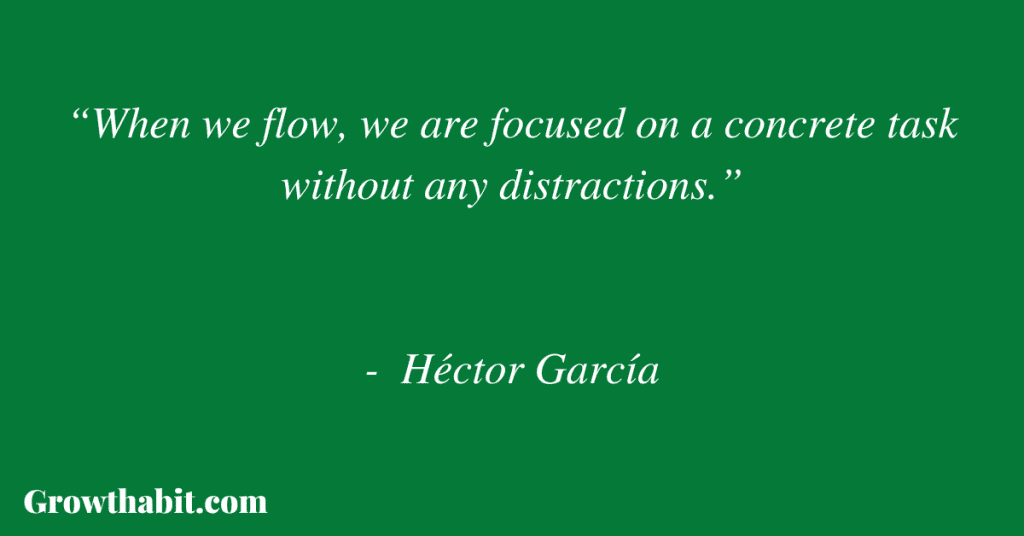
“If you want to stay busy even when there’s no need to work, there has to be an ikigai on your horizon, a purpose that guides you throughout your life and pushes you to make things of beauty and utility for the community and yourself.”
“They have an important purpose in life, or several. They have an ikigai, but they don’t take it too seriously. They are relaxed and enjoy all that they do.”
“They are always busy, but they occupy themselves with tasks that allow them to relax.”
“The easiest way to check if there is enough variety on your table is to make sure you’re “eating the rainbow”.”
“When you notice you’re almost full but could have a little more . . . just stop eating!”
“You don’t need to go to the gym for an hour every day or run marathons. As Japanese centenarians show us, all you need is to add movement to your day.”
CHAPTER 9. Resilience and Wabi-Sabi. How to Face Life’s Challenges Without Letting Stress and Worry Age You
“Proper training for our mind, body, and emotional resilience is essential for confronting life’s ups and downs.”
“The more resilient we are, the easier it will be to pick ourselves up and get back to what gives meaning to our lives.”
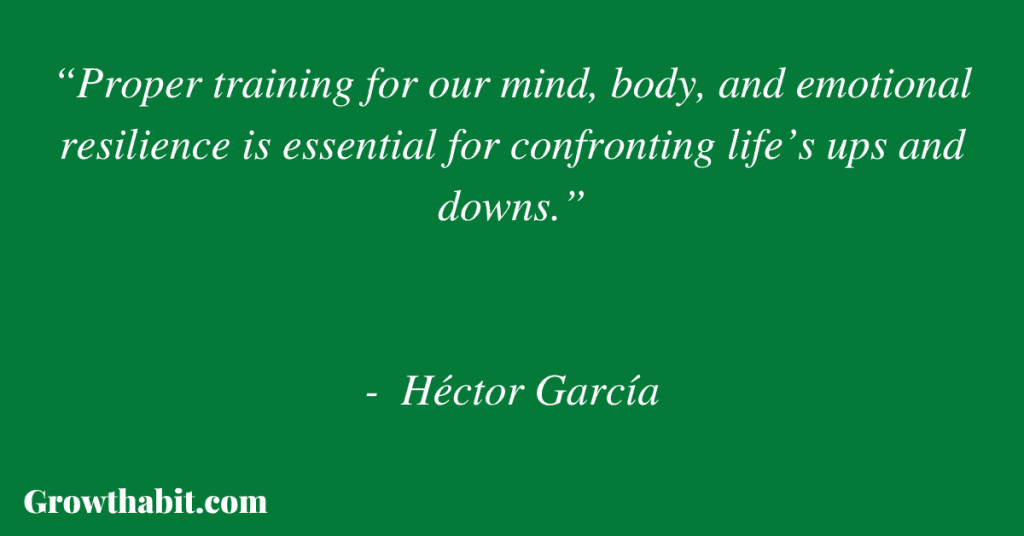
“Worrying about things that are beyond our control accomplishes nothing.”
Book Review (Personal Opinion):
The Ikigai book is a great resource for anyone seeking to know how to live a fulfilled, long, and serene life. The wording is clear, concise, and easy to understand.
It causes us to actively seek solutions to life’s most fundamental issues. It aids in expanding one’s worldview and discovering one’s ultimate calling.
The Japanese concepts presented in this book were interesting to me, however the book just scratched the surface of its subjects. In most cases, this is just common sense.
If the authors had focused more on the “how” of ikigai, I would have been more satisfied.
The book tries to cover a lot of ground, thus it spends too much time on the introduction to a lot of various things that don’t need to be introduced, like the steps to perform a sun salutation or some fundamental tai chi moves.
Whilst it could have benefited from more emphasis dedicated to the concept of ikigai as its central theme, this book is very uplifting and useful for letting its reader take a step back, slow down, and reflect on the meaning of life.
Rating : 8/10
This Book Is For:
- People who want to live a long and happy life.
- People who are looking for their purpose in life
- People who want to face life’s challenges with a stress-free mindset.
If You Want to Learn More
Here is an interview with author Héctor García on how he finds (and honors) his life purpose, his Ikigai. Finding and retaining Ikigai, an interview with Héctor García .
How I’ve Implemented The Ideas From The Book
I took some time to reflect on what I truly enjoyed doing and what made me feel alive. It didn’t take long for me to realize that I had always had a passion for writing. With newfound clarity and motivation, I decided to start writing.
One Small Actionable Step You Can Do
One small step you can take to start applying the principles of Ikigai in your life is to begin incorporating mindfulness and reflection into your daily routine.
Take a few minutes each day to reflect on what you are grateful for, what brings you joy, and what you are passionate about. This can be done through journaling, meditation, or simply taking a moment to pause and reflect.
By regularly reflecting on your values, passions, and purpose, you can begin to develop a deeper understanding of what drives you and what gives your life meaning.
This self-awareness can help you make more intentional choices and align your actions with your values and purpose.
Over time, this can lead to a greater sense of fulfillment and satisfaction in your life.
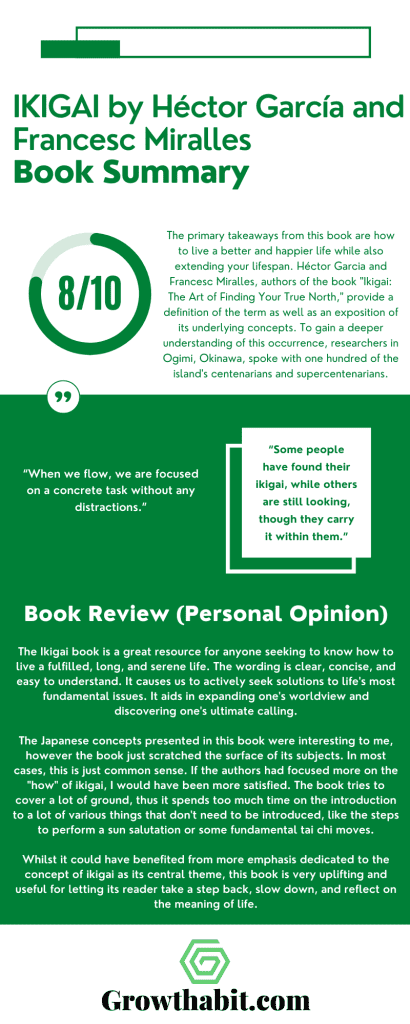
We’re fighting to restore access to 500,000+ books in court this week. Join us!
Internet Archive Audio

- This Just In
- Grateful Dead
- Old Time Radio
- 78 RPMs and Cylinder Recordings
- Audio Books & Poetry
- Computers, Technology and Science
- Music, Arts & Culture
- News & Public Affairs
- Spirituality & Religion
- Radio News Archive

- Flickr Commons
- Occupy Wall Street Flickr
- NASA Images
- Solar System Collection
- Ames Research Center

- All Software
- Old School Emulation
- MS-DOS Games
- Historical Software
- Classic PC Games
- Software Library
- Kodi Archive and Support File
- Vintage Software
- CD-ROM Software
- CD-ROM Software Library
- Software Sites
- Tucows Software Library
- Shareware CD-ROMs
- Software Capsules Compilation
- CD-ROM Images
- ZX Spectrum
- DOOM Level CD

- Smithsonian Libraries
- FEDLINK (US)
- Lincoln Collection
- American Libraries
- Canadian Libraries
- Universal Library
- Project Gutenberg
- Children's Library
- Biodiversity Heritage Library
- Books by Language
- Additional Collections

- Prelinger Archives
- Democracy Now!
- Occupy Wall Street
- TV NSA Clip Library
- Animation & Cartoons
- Arts & Music
- Computers & Technology
- Cultural & Academic Films
- Ephemeral Films
- Sports Videos
- Videogame Videos
- Youth Media
Search the history of over 866 billion web pages on the Internet.
Mobile Apps
- Wayback Machine (iOS)
- Wayback Machine (Android)
Browser Extensions
Archive-it subscription.
- Explore the Collections
- Build Collections
Save Page Now
Capture a web page as it appears now for use as a trusted citation in the future.
Please enter a valid web address
- Donate Donate icon An illustration of a heart shape
Ikigai: The Japanese Secret To A Long And Happy Life
Bookreader item preview, share or embed this item, flag this item for.
- Graphic Violence
- Explicit Sexual Content
- Hate Speech
- Misinformation/Disinformation
- Marketing/Phishing/Advertising
- Misleading/Inaccurate/Missing Metadata
plus-circle Add Review comment Reviews
4,495 Views
28 Favorites
DOWNLOAD OPTIONS
In collections.
Uploaded by SV40 on October 28, 2023
SIMILAR ITEMS (based on metadata)

Ikigai by by Héctor García & Francesc Miralles is book which talks about finding your purpose and then following it with all heart to live a happy and satisfying life. The authors take us in this search along with them and make us understand how people of Japan have been living a long and a happy life.
Are you worried about leading a happy and satisfying life? Or, do you often worry if you are living the true purpose of your life? Or, are you stuck in a job that is not your passion?
If you are looking for the answers, this summary of the book Ikigai is just for you as we are going to address all these queries a few moments from now.
Today we will discuss the book “Ikigai” by Hector Garcia and Francesc Miralles .
Ikigai is a Japanese secret concept that tells you about longevity and happiness. This book tells us how by following the Japanese concept of Ikigai, you can make your life long and happy.
It is a fact that people living on Okinawa Island, Japan, live the longest and happiest life. According to the World Health Organization (WHO), the world’s highest life expectancy record is in their name, but what is their secret?
Its secret is Ikigai, which is a Japanese concept. It means the joy of being busy.
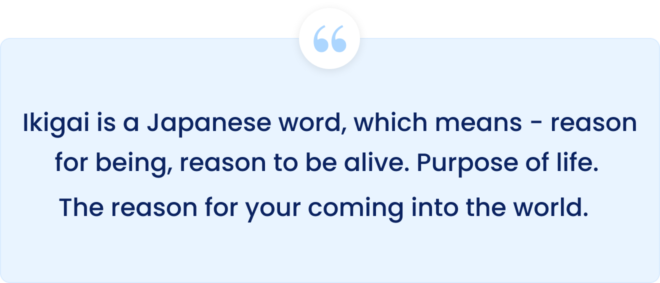
Ikigai is a Japanese word that means – the reason for being, a reason to be alive. Purpose of life. The reason for your coming into the world.
The Japanese believe that every person has at least one Ikigai, which they get after understanding themselves. Ikigai is hard to find.
People’s whole lives go out looking for it. You will be surprised to know that you also have an Ikigai.
Reasons for reading Ikigai
The authors say about Ikigai that this is a concept of our Ikigai, which helps make the body strong so that we can live longer.
Once you feel like you have no clear purpose for living, no matter how healthy your other daily habits may be, your life span can be seriously shortened.
And research has shown that there is a hack in life. Having a goal can prevent the development of genes associated with inflammation in the body, as well as slow down the process of cell death.
Along with this, the authors of this book give us the following reasons:
1. It shows the purpose
It could be as little as finding a better job or looking to buy a home, cooking a special, or passing an exam. But it helps us to be active. Because our goals, no matter how big or small, keep us going, which allows us to be active and happy.
But to start anything, first of all, knowing about it and deciding the purpose is essential, as it is crucial to allocate the time to start health, wealth, or business.
The author tells his story and says that when he became aware of his big goal, he started getting peace and happiness in every small and big work related to it, and every action made him feel that his life would be happy, which is true today.
It also gave peace to his mind that he is living a purposeful and meaningful life. Even though he sometimes got minor failures, focusing on the goal was essential to his happiness.
2. It inspires happiness
We often miss some of the most critical moments we like or need to be in our busy lives. But Ikigai advises that instead of being grateful for them, we should focus more on living those moments the next time we get the chance.
This book gives you tips to imagine in your mind your happy activities, your best moments, present moments and how it looks, and how good you feel in them.
Because we seldom notice that, instead of how well we can do in the present, we keep worrying about the future.
Therefore, taking time out and think about where I am in life, where I want to reach, and the necessary things to do to help human happiness and peace of mind both in the present and future.
3. Happiness lies in simplicity
The people of Japan like simplicity. Many people have made significant inventions, written books, researched, and achieved great success, but they give importance to simplicity in life.
They believe the spirit of being together, an active daily routine, matters for a peaceful, healthy, happy, and long life. Apart from this, the Okinawa residents of Japan also give a mark of kindness.
4. It promotes health awareness
The book Ikigai makes us aware of how to be healthy; it tells us to constantly move the body to be active and to keep it at the moment; you can walk or walk in your row in the office or do your desired activity.
5. It helps in increasing positivity
Apart from this, this book also helps us to stay positive while teaching our desired work and positive thinking.
Find your Ikigai
Here are the 12 steps suggested to find your Ikigai about whom we will talk in detail. Understand every step very carefully because every step can change your life completely.
Step 1: What is the meaning of life?
What is the meaning of your life? This question haunts all of us at some point or the other. Could you take a look at it? If you find the purpose of your life. That purpose of life we are looking for.
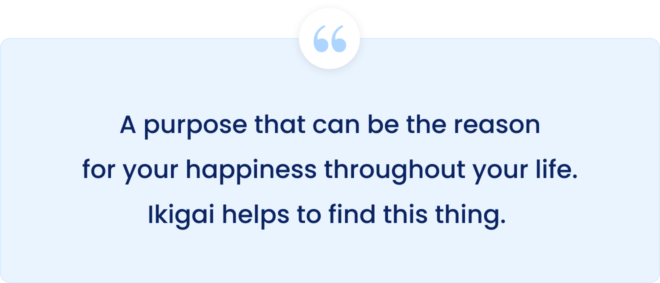
So understand, one will find a reason to wake up in the morning and sleep peacefully at night. A purpose that can be the reason for your happiness throughout your life. Ikigai helps to find this thing.
To find your Ikigai this way, you should ask yourself these four questions:
Question 1: What is love?
This question is probably the easiest. For this, think about what work you like best, which gives you energy, which you enjoy doing. In doing this, you stay energized and energized. This can be anything. Like – painting, singing, cooking, teaching, reading, traveling, or Youtube like me, etc. Any work that attracts you a lot. This could be your office work. Family work can happen. This can be your interest.
Question 2: What are you good at?
What work are you good at? In which work are you an expert? What skills do you have? In which you are already good naturally, or you have an interest in doing and learning it.
It can be different for each one. Therefore, find such a thing in which even if you have a little bit of natural skill, even if there is no perfection, then it will come slowly while doing it.
Question 3: Do you get paid for this?
If you talk only about love and good, then you can like to do anything. But it is optional that for this thing, you should be paid. Maybe you love cleaning the house. But for this thing, no one will pay you. So find some work that the world also needs so that they will pay you in return.
Question 4: What does the world need?
For this, you see, whether the people you like need anything. So what does the world need from these so that their problem can be solved? So that you can solve people’s problems through your favorite work and improve your lifestyle by earning money.
Step 2: Knowing Ikigai and knowing the circle
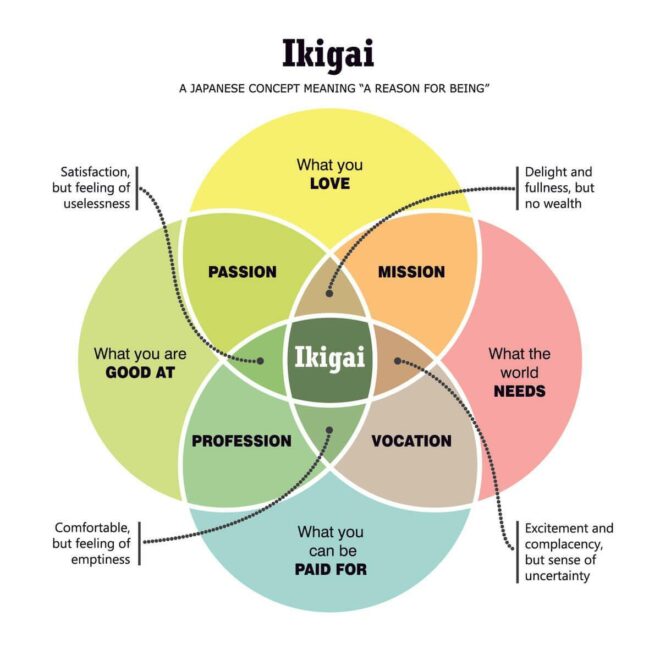
1. Know the Passion
What is expected is called your passion between the first and the second circle. That is, do whatever work you like, in which you are good too. That is called your passion.
2. Professional Circle
Circle between the second and third circles; what is expected is your profession. That is, the work you are good at.
3. Vocation Circle
Between the third circle and the fourth circle, what is expected is your vocation. That is, for whatever work, you can get money. In the same position, if the world even needs it, it can become your vocation.
4. Mission Circle
Between the fourth circle and the first circle, which is expected, is where your mission lies. That is what the world needed. You loved doing the same thing. So that becomes your mission, and both benefit.
In this way, if there is some work you like to do in your life, you are also better at that work than others, then you can get money also. And according to you, people need that work in the world too. So much work is called in Japanese – Ikigai.
To live a happy and fulfilling life, you’ll have to find your Ikigai. And when you see your Ikigai in your life, only then can you live a fulfilling life; otherwise, always in life, something will remain incomplete. And for all this, with all sincerity, you have to find answers to these four questions.
Step 3: How to find your Ikigai?
First of all, make a big square. Then, divide it into four equal square parts.
Write in the first square: I love this work and am also an expert in it. You write all those things in it which you love to do and are an expert in them.
Write in the second square: I like this job but don’t know how to do it well. That is such work that you love very much. But they don’t let you do it. But your heart does too much to make that work.
Write in the third square: Just not my cup of tea. But they have to be done. That is, doing things you don’t like to do. But it has to be done under compulsion. If you don’t like programming, it has to be done to stay in the job and earn money.
Write in the fourth square: Just not my cup of tea. I can’t even do well. What are things that you don’t even like? You are not even his expert. Still, you have to do it under compulsion, like you have to clean your room.
After writing these, you see that in what activities do you spend most of your time? How much time do you spend doing those things?
Which you are good at and you also like. How long do you spend doing something you don’t like? The author recommends doing this because most people spend more time doing work they do not like. That’s why they can’t get their passion. And there is a feeling of incompleteness in life.
Meaning that such people spend more time in the bottom two squares. But to find your passion, you should devote more time to the above two works.
You should spend more time on the above tasks without quitting your job. In these tasks, please focus on the ones you like the most and enjoy doing them too. By which later on, you can earn money too.
And have faith that you will find your Ikigai if you look for it honestly.
Step 4: Four Secrets of long, happy life and healthy living
Some particular habits are included in the life of the people of Okinawa, Japan. Because of this, they live a long, happy, fulfilling, and quality life.
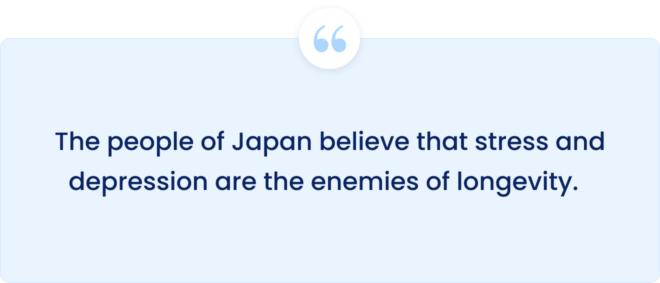
The people of Japan believe that stress and depression are the enemies of longevity. Therefore, stress should always be avoided to lead a happy life.
2. Food and drink
People of Japan never eat full stomach; they always eat only 80% of their hunger. For this, when you eat food, stop eating immediately as soon as your stomach is about to fill. Initially, you may not know when you have eaten 80% of your food, but you will learn as you do it slowly.
In a recent study, it has been found that the people of Okinawa consume an average of 1800 to 1900 calories per day; apart from that:
- The people of Japan eat an average of 18 different types of foods every day.
- Take five servings of fruits and vegetables daily containing different colored capsicum, carrot, spinach, cabbage, potato, legume, and soybean.
- 30% of the calories of the people of Japan come from vegetables only.
- Wheat is the foundation of Japanese people; they eat white rice daily.
- Fish is eaten three times a week.
- Salt is eaten on an average ranging from 7 grams to 12 grams.
- Apart from this, Japanese people also consume green tea and white tea.
3. Doing one thing at a time
Whatever work you do, having focus brings flow to your work so that you can do that work very quickly and without getting tired.
Therefore, always choose the work you have to research; you will have to work hard, and your mind will always have to think so that your focus remains.
We feel that doing more than one thing at a time saves time and can finish more work in less time, but the scientific evidence of doing this is just the opposite.
Research has proved that people who do more than one work at a time finish the work late and are not productive at all while doing that work.
That’s why we should do only one thing simultaneously with complete focus.
Step 5: Ikigai retirement and health lessons
Did you know there is no word like retirement in Japanese? The people of Japan never retire from their work; they keep on working their whole life.
On the other hand, if we talk about other countries, people need early retirement. They should get rid of their work by any means which happens because they do not love their work.
When you do any work forcibly or just for money, then you are not happy with that work. The company you work for also does not get more value from you.
Therefore, to live a long and happy life, you should love your work; then, you will never think of retirement because your happiness will now be in your work and not sitting at home and rusting your body.
If you sit for too long, you will get old sooner. Sitting for a long time may give you physical comfort, but it will damage your cells, and cause food imbalance, hypertension, and even cause cancer.
And to avoid this, you should add these few habits in your daily life:
- Walk for at least 21 minutes daily
- Do not use a lift or elevator
- Participate in social activities so you do not sit in front of the TV for a long time.
- Replace your junk food, and packaged food with good food
- Get good quality sleep, and take 7 to 9 hours of sleep. Do not sleep more than this
- Play with your children or your pet
- In the beginning, you can also set a timer so that you remember that it is time to walk,
- You can also use the app from Google, which gives you the task of walking daily.
Step 6: Focus on Work
It is essential to have focus while doing whatever work you do. Having focus brings flow to your work so that you can do that work very efficiently and without getting tired.
To bring focus and flow to the work, you should follow the mentioned things:
1. Choose the hard work
As we discussed earlier, always choose the work that you have to do research on. You will have to work hard, and your mind should always be thinking so that your focus remains.
Keep in mind that do not choose any such work which is out of your ability and it is so difficult for you to do it that after a few days, you stop doing it. Don’t even do what is easy for you as you will feel bored. Stop doing it.
2. Clear objective
Before starting any work, you should have a clear objective of doing it, what you have to do, when to do it, and why to do it. You should know all these things in advance. There should be a deadline so that you can finish it on time and not postpone it further.
3. Only one task
And as we have known earlier, only one thing at a time.
Step 7: 10 Short rules of success through Ikigai
- Surround yourself with good friends
- Live life at a slow pace
- Do not fill your stomach entirely while eating.
- Make your body in shape
- Be in the present
- Always smile
- Be active, don’t retire
- Connect with nature
- Learn to be grateful
- Find and follow your Ikigai
Step 8: Okinawa elder’s advice
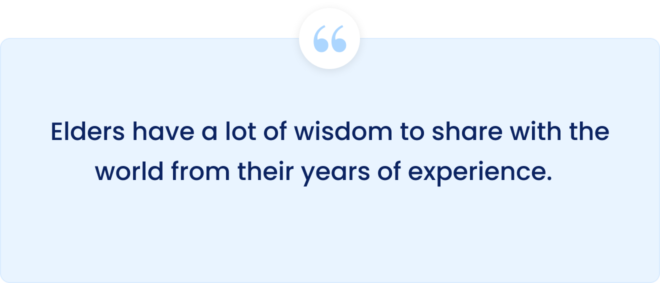
Elders have a lot of wisdom to share with the world from their years of experience. Those of us young can sometimes pretend we know everything, but we should learn essential things about life from generations senior to us, who know better than us.
And at the same time, focus on enjoying life with what you have rather than what’s going wrong or isn’t.
A great way to do this is to connect with everyone around you, even strangers. And that’s what the old-timers in Okinawa suggest: smile and talk openly to everyone you meet.
The friendly attitude that develops from this will help you develop friendships with many people throughout your life.
Okinawa elders also recommend building such loving relationships and maintaining those relationships.
To learn more about making friends, please read the summary of “How to Win Friends and Influence People.” The link is just down below:
How to Win Friends and Influence People
Step 9: Keep moving throughout the day
Okinawa residents suggest you are not required to play a sport or run to be healthy. For this, you can decide on any running work according to your convenience.
Because speed can inhibit consistency from the start, Okinawans try to keep their forms of running exercise simple. Jogging around, days in the garden, or singing for fun are just a few simple ways they go through the bar.
Keeps up the pace. Apart from this, Radio Tasso, a Japanese radio show, has helped Okinawas to exercise for years. It plays tunes in a big station in Japan, and people listen to the directions to exercise.
To maintain body and mind movement, you should also get up in the office for some time and walk in your row or office.
Step 10: Japanese people’s secret to living a long life
Japanese elders share these five secrets to living a long life:
1. They Don’t worry
The secret to a long life is not to worry. And to keep your heart young, don’t let it grow old. Open your heart to people with a friendly smile on your face.
If you smile and open your heart, your grandchildren and everyone else will want to see you. The best way to avoid worrying is to get out and socialize.
Older people in Japan often do this. That’s why they have been able to live so long. According to them, you need to be happy instead of worrying about living a long life.
Spending time with others without causing trouble to anyone and having fun is all that matters.
2. Cultivate good habits
Good habits matter the most for long life. In today’s time, getting up late has become the most significant bad habit.
Your body is not active, due to which your body becomes tired. So, first of all, make a habit of getting up early and doing some work in the morning , which will make your body agile.
Do something that relaxes you. You can run or walk after getting up early in the morning.
You can also do some work at home, like yoga, watering plants, or planting new plants. After this, come home and make breakfast with your hands.
Use green vegetables in your breakfast. Just find your Ikigai no matter what you’re doing. The key to staying sharp in old age is at your fingertips. If you keep your fingers busy, you can live for 100 years.
Remember that if you do not work after getting up in the morning, your body becomes weak. After this, pray to God for your good health and good life.
And do these things consistently every day. Keep in mind – eating vegetables helps you live longer. You need to do three things to live a long time:
- Exercise to be healthy
- Spend time with people.
3. Nurture your friendships every day

Keeping in touch with your friends, keeps adding another year to your life. Because your friends are those people who make you feel happy and memorable.
And being with friends is the most pleasurable thing in life. The people you love are the secret to a long life. To understand the importance of this thing and spend time with friends.
Chatting, drinking tea, and singing with your neighbors are the best things in life. Go to new places with your friends; it will make you happier. The secret of a long life is mixing with people and moving from place to place.
4. Live an incomplete life
For long life, focus on doing ‘slow’ and ’at ease.’ If you are not in a hurry, you will live longer. Many old men in Japan share this secret to live longer.
They wake up early, exercise, and have a good breakfast. And when they get tired after all this, they meet their friends.
Doing many different things every day prolongs your life. Nowadays, people are very busy due to their busy schedules, and sometimes they also become overwhelmed with their work.
But doing so can never increase your life. Therefore, when crushed, focus on one task at a time. By doing this, you can also complete your current work correctly. Remember, the secret to a long life is to go to bed early, rise early and go for a walk.
If you live in peace, enjoy small things, and meet your friends, no one can stop you from living more.
5. Be optimistic
Tell yourself every day, ‘Today will be a day full of health and energy. Live it to the fullest.’ Of course, no matter how old or weak you may feel, tell yourself I still have much to do.
And laugh out loud while saying this. Laughter is the most important thing. Wherever you go, laugh there; it will put you and the person living with you in a good mood.
And you will get the motivation to work. The mood in which you spend your time matters a lot. If you look at the statistics, people who are sad, unhappy, or angry die before people who laugh more and be happy.
So make laughing your priority. Consider yourself lucky to be in this life. Say thank you, and help others; it will give you a feeling of happiness and satisfaction. To live longer is in your hands; embrace it.
Step 11: Logotherapy to Ikigai
People are not happy due to a lack of purpose in their lives. Due to a lack of meaning in life, life does not seem meaningful.
And it becomes the reason for your sadness, which makes it impossible to be happy for a long time. Even many people give up hope and try suicide, which is a big problem. You can use the logotherapy technique mentioned in the book to overcome this problem.
Logotherapy… What is it?
Logotherapy inspires patients to consciously search for their life’s purpose to confront their neurosis. Their search to fulfill their destiny leads them to mental blocks of the past, breaking and overcoming all obstacles that stand in the way.
The process of logotherapy steps can be best understood in these five steps:
- The person feels empty, hopeless, or anxious.
- The therapist shows him that he desires to have a meaningful life.
- By which the patient comes to know his life’s purpose at that particular time.
- He decides to accept or reject his destiny with which his whole life is connected.
- And when the patient finds this new passion. This new passion of his helps him to overcome obstacles and sorrows.
If the person needs help doing this, logotherapy helps him by visualizing the picture. He needs guidance in the search for his life’s purpose and overcoming troubles to move toward his purpose. According to logotherapy, discovering one’s life purpose helps the individual fill that gap.
Step 12: Important lessons
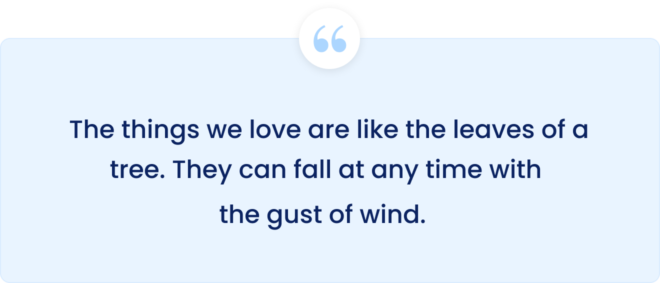
Life lessons from the book:
- An intelligent person should not avoid the pleasures of life but should always be aware that dependence on them can make him a slave to satisfaction. That’s why you should make it a habit to be happy from the heart instead of being prepared for those pleasures which vanish in no time.
- The present is everything that exists, and it is the only powerful thing we can control and through which we can control our today and future life.
- The things we love are like the leaves of a tree. They can fall at any time with the gust of wind. Everything we have, and the ones we love, will eventually disappear. So we have to be aware to be happy with it without being pessimistic about it. We should be happy in the present, which helps us avoid much pain during loss.
- There is no exact plan to connect with our Ikigai. So don’t worry too much about finding it. Just be engaged in what you love while surrounded by people who love you.
- We don’t make meaning of our life; we find it by doing the work we love, so we do the work passionately.
- Each one of us has a unique reason to be alive. Find it and live life to fulfill the purpose of life.
Daily healthy habits:
- Japanese stop eating when their stomach is 80% full.
- Stress is a proven killer. While challenges in life are suitable for keeping the mind and body active, we should focus on solving the fundamental challenges and avoid the rest.
- Take rest. Start slow and keep doing it. Eat well and sleep. Everything is fine. Life is a marathon, not a 100m sprint.
- Keep your mind and body busy.
- People with a clear purpose never retire and stay with their passion till their last breath.
- Smile and meet people.
- Work hard, but on your Ikigai. Work as little as you can on the rest.
- Just get started, and start with the most accessible and most comfortable steps. Keep improving it with time and information.
Eating habits
- Eat everything in a little. Diversity is key. Eat a variety of foods, especially vegetables.
- Apart from this, the people of Okinawas rarely eat sugar. But no sweets or chocolates or negligible, so diseases like sugar are rarely heard in Japan. So to avoid sugar and stay healthy, you should also use this method.
- Eat lots of citrus fruits. They contain chemicals that prevent cancer, diabetes, and obesity.
So, friends, this is the secret of Japanese people’s happiness and healthy living, which is called Ikigai. We learned that more time, energy, and attention should be given to working passionately, adding value to people’s lives with the work you want so that you also work on your passion and people’s problems should be solved. And one should live for it by making a clear goal in life.
I hope you have learned about passion, happiness, and health. Now adopt them in your life and become successful by doing your passionate work.
Ikigai Book Review
So, I hope that you liked the summary of the book “Ikigai: The Japanese Secret to a Long and Happy Life” by Héctor García and Francesc Miralles. I found this book to be a treasure trove of wisdom and inspiration.
“Ikigai” is a Japanese concept that roughly translates to “a reason for being.” It’s the idea that a fulfilling and happy life comes from discovering and pursuing one’s true passion and purpose. This book takes you on a journey through the lives of the inhabitants of Okinawa, a small Japanese island known for its high concentration of centenarians, people who live well into their 100s.
The authors, García and Miralles, expertly weave together a narrative that is both engaging and informative, combining interviews, personal anecdotes, and scientific research. What I found particularly captivating was how they managed to uncover the secrets of the Okinawans’ longevity and happiness, and how these lessons can be applied to our own lives.
One of the key lessons I took away from the book was the importance of having a clear purpose in life. In Okinawa, people are encouraged to discover their “ikigai” early on and dedicate their lives to it. This resonated with me deeply, as I realized that I too needed to find my own “ikigai” and live a more purpose-driven life.
The book also emphasizes the importance of balance in life. Okinawans manage to strike a perfect balance between work, leisure, and social connections. This holistic approach to living was refreshing, as I often find myself caught up in the hustle and bustle of daily life, neglecting important aspects of my well-being.
One of my favorite parts of the book was the practical advice the authors provided for applying the concept of “ikigai” to our own lives. They propose simple yet powerful strategies like fostering a sense of community, staying active, and eating healthily. These are ideas that may seem obvious, but the way García and Miralles present them makes you see their importance with newfound clarity.
The prose is easy to read and engaging, making the book a pleasure to read. The authors’ passion for the subject matter is apparent throughout, and their genuine enthusiasm for the Okinawan way of life is contagious.
In conclusion, “Ikigai: The Japanese Secret to a Long and Happy Life” has had a profound impact on the way I view life and happiness. I highly recommend this book to anyone seeking inspiration, wisdom, or simply a fresh perspective on living a more fulfilling life. It’s a journey that will surely stay with me for years to come.
Similar Books
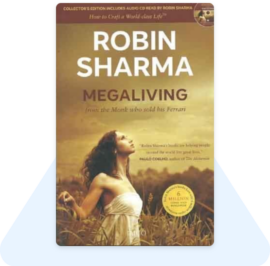
Exploring The World Of Lucid Dreaming
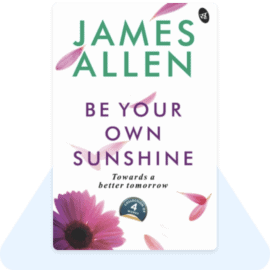
Be Your Own Sunshine
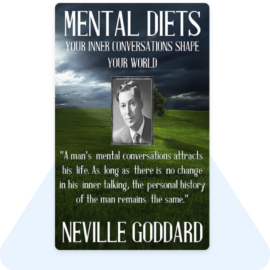
Mental Diets
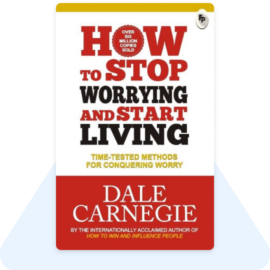
How To Stop Worrying and Start Living
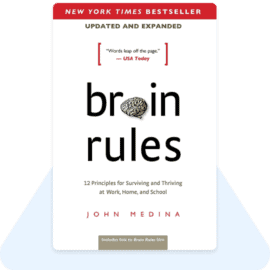
Brain Rules
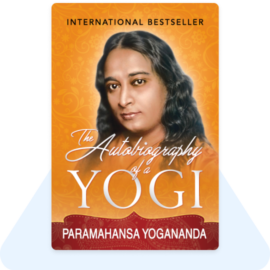
Autobiography of a Yogi
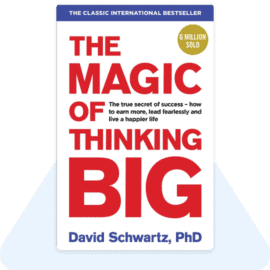
The Magic Of Thinking Big
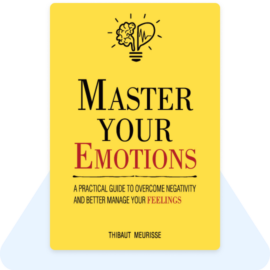
Master Your Emotions
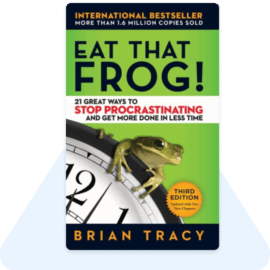
Eat That Frog
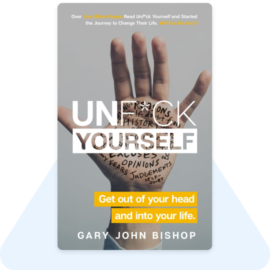
Unfu*k Yourself
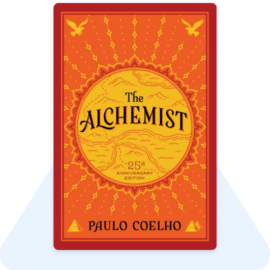
The Alchemist
173 thoughts on “ikigai by héctor garcía & francesc miralles”.
Day—9–ikigai is complete
Day 9. This book teaches us the Japanese Secret to a Long and Happy Life” explores the concept of Ikigai, which is the Japanese philosophy of finding one’s purpose in life. It provides insights and practical tips on how to identify and pursue your Ikigai, leading to a more fulfilling and satisfying life.
Day 9 book Ikigai This book summary helped me a lot to find the purpose of my life. Stay happy and healthy be happy.thankuuu Amit sir for amazing book summary.
Leave a Comment Cancel reply
Save my name, email, and website in this browser for the next time I comment.
Join Our Free Newsletter and never miss latest book summaries!
- Privacy Policy
- Terms & Conditions
- Affiliate Disclosure
Get the Reddit app
This is a moderated subreddit. It is our intent and purpose to foster and encourage in-depth discussion about all things related to books, authors, genres, or publishing in a safe, supportive environment. If you're looking for help with a personal book recommendation, consult our Weekly Recommendation Thread, Suggested Reading page, or ask in r/suggestmeabook.
Ikigai by Hector Garcia and Francesc Miralles is a definite eye-opener.
I picked this book because of its hardcover tbh. It looks beautiful and I just couldn't think of not having such a beautiful book on my shelf. But recently I read this book and I gotta say, it is such an eye-opener. I would recommend this book to all book lovers. It shows us how to live properly and those small things in life which if we correct, our whole life will change by a great deal. There is some great valuable information there and I honestly loved this book.
Has any of you read it?
By continuing, you agree to our User Agreement and acknowledge that you understand the Privacy Policy .
Enter the 6-digit code from your authenticator app
You’ve set up two-factor authentication for this account.
Enter a 6-digit backup code
Create your username and password.
Reddit is anonymous, so your username is what you’ll go by here. Choose wisely—because once you get a name, you can’t change it.
Reset your password
Enter your email address or username and we’ll send you a link to reset your password
Check your inbox
An email with a link to reset your password was sent to the email address associated with your account
Choose a Reddit account to continue

Book Review Ikigai: The Japanese Secret to a Long and Happy Life
The japanese term “ikigai” or the “art of living” refers to the practice of living a purposeful life with respect to a person’s sense of self..
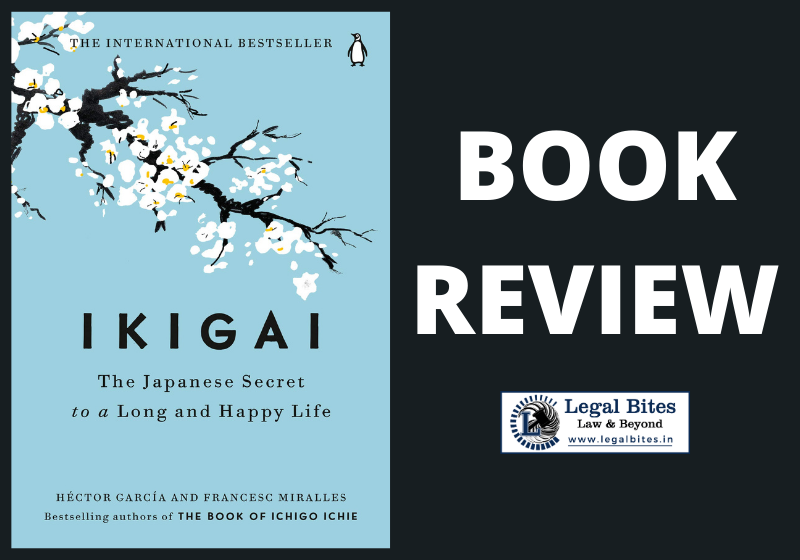
The Japanese term “ikigai” or the “art of living” refers to the practice of living a purposeful life with respect to a person’s sense of self. The book Ikigai: The Japanese Secret to a Long and Happy Life , written by Francesc Miralles and Hector Garcia Puigcerver, discusses this idea from the author’s visit to a town in Japan called Okinawa, home to the largest population of centenarians in the world. Aqueen Ekka reviews the book.
Authors- Hector Garcia Puigcerver and Francesc Miralles Published by- Penguin Books Language- English Pages- 208
The fascinating thing regarding the Okinawa province is the longevity and healthy living of the villagers. Puicerver and Miralles interviewed the locals in order to understand the true meaning of the word “ikigai” . The book is a perfectly encapsulated blend of cultures which is very practical, as it has fully justified the epitome of a self-help book.
Ikigai: The Japanese Secret to a Long and Happy Life, as a whole, provides a daily dosage of how to embrace and obtain a healthier and happier way of life through discovering our individual ikigai with experiences, practices and tips for a sophisticated yet harmonious lifestyle. Various aspects of our lives are addressed in this book- such as the importance of flow, the importance of friendships, the reason for living and finding a source of motivation.
The book provides a ten-point compressed rule of ikigai:
Stay active; don’t retire.
Take it slow.
Don’t fill your stomach.
Surround yourself with good friends.
Get in shape for your next birthday.
Reconnect with nature.
Give thanks.
Live in the moment.
Follow your ikigai .
It has been observed that the villagers of Okinawa abide by these rules due to which the centenarians have discovered that there exist extremely low rates of heart disease and dementia among these villagers.
The second element of the book lays down the significance of mental health, which is often neglected by laymen. The book provides tips as to how one can activate the brain, which is often restricted solely to routine and patterns, therefore, lacking flexibility. It suggests activities like social interaction and mind games, which can be beneficial as a workout for the brain.
It also states that avoiding stress is essential for a healthy lifestyle. Necessary scientific studies have also been introduced, which show that stress, in the long run, impacts the healthy cells in our body, thereby leading to premature ageing. It presents Yoga as a remedy which would calm the body and mind.
The third segment of this book enlightens us about a technique known as Morita therapy . It was primarily introduced to relieve anxiety and obsessive behaviour. The therapy requires the individual to cultivate new emotions by accepting their feelings and mannerisms. The book in this segment provides a detailed explanation of how this therapy functions, which can be practically applied by an individual to attain one’s ikigai .
The fourth segment of this book focuses on the “flow” concept. The flow concept revolves around enjoying the smaller joys of life, in a manner that sustains concentration so that the person doesn’t get bored in doing it. In addition to this, the importance of surpassing levels of difficulty has also been addressed, and how flow can be acquired through new thrilling activities which drive us to discover new traits and aspects of us. This book encourages small gestures to establish and preserve friendships, such as greeting a stranger with a smile that can directly impact an individual’s longevity.
Suggestions for a Healthy Life
Towards the end, the book talks about the Okinawan diet, which is variegated, self-sourced and cooked. We are introduced to the Okinawan tradition, hara hachi bu, which suggests that one should finish eating once they are eighty per cent full. The book also mentions various beverages consumed by the centenarians, like green tea, white tea and shikuwasa (traditional Japanese fruit), which contain high antioxidant levels and cater to a healthy and long life. The Okinawans’ belief in exercise leads them to practice Radio Taiso, which is a warm-up exercise . The authors disclose these lifestyle habits with the purpose of inspiring urban and semi-urban people to adopt these traits.
Pursuing activities that enhance and increase the vibration of an individual could increase their lifespan and quality of life. The goal of the book is not to preach or patronise the reader in their current lifestyle choices. Instead, it plainly points out to us that a disciplined and healthy lifestyle is a real possibility. It supports each idea with common sense, anecdotal or scientific evidence and reminds us that if the locals of a small town in Japan can do it, so can we.
Conclusion: A Guide to Happiness and Mental Well-being
In the words of Neil Pasricha , bestselling author of The Happiness Equation :
“Ikigai gently unlocks simple secrets we can all use to live long, meaningful, happy lives. Science-based studies weave beautifully into an honest, straight-talking conversation you won’t be able to put down. Warm, patient, and kind, this book pulls you gently along your own journey rather than pushing you from behind.”
Overall, this book is truly uplifting. The reader is intrigued by the simplicity and calming tone it offers, and it captures the attention of the reader till the end. The book unleashes the Japanese Zen philosophy, inspiring the readers to search and discover their individual ikigai . Through this book, the authors aim to encourage healthy, content and purposeful living among people.
- Online Judiciary Preparation Tool – Legal Bites Academy
- Law Library: Notes and Study Material for LLB, LLM, Judiciary and Entrance Exams
Aqueen Ekka
Related news.

IKIGAI: The Japanese Secret to Finding Purpose and Happiness in... › Customer reviews
Customer reviews.

IMAGES
COMMENTS
3.74. 79,028 ratings7,007 reviews. Bring meaning and joy to all your days with this internationally best-selling guide to the Japanese concept of ikigai - the happiness of always being busy - as revealed by the daily habits of the world's longest-living people. "Only staying active will make you want to live a hundred years." (Japanese proverb)
A book review of "Ikigai, the Japanese secret for a long and happy life" by Frances Miralles and Héctor García. The book explores the concept of ikigai, the reason for your existence, and how it relates to healthy aging, stress management, nutrition, and social ties.
A collection of books by Héctor García that explore the Japanese concept of ikigai and the Danish and Swedish approaches to hygge and lagom. Read reviews, ratings, and notes from readers who share their insights and experiences on these topics.
A book review of 'Ikigai: The Japanese Secret To A Long And Happy Life' by Héctor García and Francesc Miralles. The reviewer shares her insights on the meaning of 'ikigai', the research on happiness and longevity, and the interviews with Okinawans.
Learn how to discover your ikigai, the Japanese concept of a reason for being, through stories, exercises, and cultural insights. This book by Héctor García and Francesc Miralles helps you balance passion, mission, vocation, and profession for a longer and happier life.
This book isn't just a page-turner; it's a roadmap to living your best life, Japanese style! Forget dragons and treasure chests; here, we're hunting for the elusive "Ikigai.". Ikigai pronounced "ee-kee-guy," is not just a word; it's a melody, a dance, and a recipe for a life that sings with purpose. Join me on this adventure as ...
INTERNATIONAL BESTSELLER • 2 MILLION+ COPIES SOLD WORLDWIDE "Workers looking for more fulfilling positions should start by identifying their ikigai." ― Business Insider "One of the unintended—yet positive—consequences of the [pandemic] is that it is forcing people to reevaluate their jobs, careers, and lives. Use this time wisely, find your personal ikigai, and live your best ...
Book Review: The Ikigai Journey: A Practical Guide to Finding Happiness and Purpose the Japanese Way by Hector Garcia and Francesc Miralles; The Mindfulness of an Empty Cup; Book Review: Ikigai: The Japanese Art of a Meaningful Life by Yukari Mitsuhashi; Combining passions to find purpose
The book emphasizes that finding your Ikigai is a journey, not a destination. By actively engaging with these prompts and exercises, you can gain valuable insights into your purpose and move ...
This Ikigai book review delves into the heart of Japanese wisdom, offering readers a profound understanding of how to find joy, purpose, and longevity in life. The concept of Ikigai is not just a philosophy; it's a way of living that intertwines personal satisfaction with daily purpose. Let's embark on a journey through the key insights and ...
Quick Summary of the book Ikigai: The Japanese Secret to a Long and Happy Life. As mentioned above, this book covers many topics related to the "art of living." The authors define ikigai and the rules of ikigai—they conducted a total of one hundred interviews in Ogimi, Okinawa to try to understand the longevity secrets of centenarians and supercentenarians.
Find helpful customer reviews and review ratings for Ikigai: The Japanese Secret to a Long and Happy Life at Amazon.com. Read honest and unbiased product reviews ... Do some research, find out what it is, watch some YouTube videos. If you buy any book on the topic of Ikigai, this would be the best one to purchase. It is comprehensive and well ...
In the quest for a meaningful life, the concept of "ikigai" offers a fascinating perspective. The book Ikigai: The Japanese Secret to a Long and Happy Life by Hector Garcia and Francesc Miralles delves into this Japanese philosophy, exploring the principles that can lead to a longer, happier, and more fulfilled life. Having recently listened to the audiobook, I found it both enlightening ...
The Book in 3 Sentences. The book argues that the reason why Japanese people live the longest in the world is because of their Ikigai. The book argues that everybody has their Ikigai and suggests ...
I think this book offers some occasional nugget of wisdom from people who have lived much longer than we did, however, it failed miserably in explaining how we can find Ikigai and the authors did ...
Written by the Spanish health and lifestyle authors; Hector Garcia and Francesc Miralles, one of their many books on Japanese culture, Ikigai is a self-improvement book about finding meaning in life and how having a sense of purpose contributes to longevity. Ikigai is a beautifully nuanced concept, rooted in Japanese culture and can be translated as "the happiness of always being busy ...
At its core, "Ikigai" represents the pursuit of a life rich in meaning, purpose, and fulfillment. This review delves deep into the book "Ikigai," co-authored by Héctor García and Francesc Miralles, which serves as a comprehensive guide to understanding and embracing this transformative concept.
The book Ikigai: The Japanese secret to a long and happy life is divided in four parts - Finding your purpose, Achieving flow, living here & now and little changes one can do in life like diet and exercise.. Finding your purpose through logo therapy by famous Viktor Frankl who wrote Man's Search For Meaning: The classic tribute to hope from the Holocaust is explained very nicely.
IKIGAI is anything that provides you a purpose in life, which keeps you going, which motivates you to wake up early, or which makes you happy. A small town in Japan, known as Ogimi has the highest life expectancy in the world. This town, their lifestyle, and in general, the overall lifestyle of the Japanese people led to the creation of this book.
The writers of this book believe that the concept of ikigai is a significant factor in both the extraordinarily high quality of life enjoyed by Japanese people and their exceptionally long-life expectancy. Book Title— Ikigai, The Japanese Secret to a Long and Happy Life. Author— Héctor García and Francesc Miralles. Date of Reading ...
And according to the residents of the Japanese village with the world's longest-living people, finding it is the key to a happier and longer life. Having a strong sense of ikigai —where what you love, what you're good at, what you can get paid for, and what the world needs all overlap—means that each day is infused with meaning. It's ...
Ikigai Book Review. So, I hope that you liked the summary of the book "Ikigai: The Japanese Secret to a Long and Happy Life" by Héctor García and Francesc Miralles. I found this book to be a treasure trove of wisdom and inspiration. "Ikigai" is a Japanese concept that roughly translates to "a reason for being."
Introduction: In listening to the fast-paced, modern world where stress and burnout have become alarmingly prevalent, pursuing a long and happy life has become an elusive quest for many. In his…
Ikigai by Hector Garcia and Francesc Miralles is a definite eye-opener. I picked this book because of its hardcover tbh. It looks beautiful and I just couldn't think of not having such a beautiful book on my shelf. But recently I read this book and I gotta say, it is such an eye-opener. I would recommend this book to all book lovers.
Overall, this book is truly uplifting. The reader is intrigued by the simplicity and calming tone it offers, and it captures the attention of the reader till the end. The book unleashes the Japanese Zen philosophy, inspiring the readers to search and discover their individual ikigai. Through this book, the authors aim to encourage healthy ...
"IKIGAI: The Japanese Secret to Finding Purpose and Happiness in Everyday Life" offers a profound exploration into the Japanese concept of finding joy and meaning in everyday activities. Through a blend of insightful philosophy and practical advice, the book provides readers with a roadmap to uncover their own 'IKIGAI,' or reason for being.